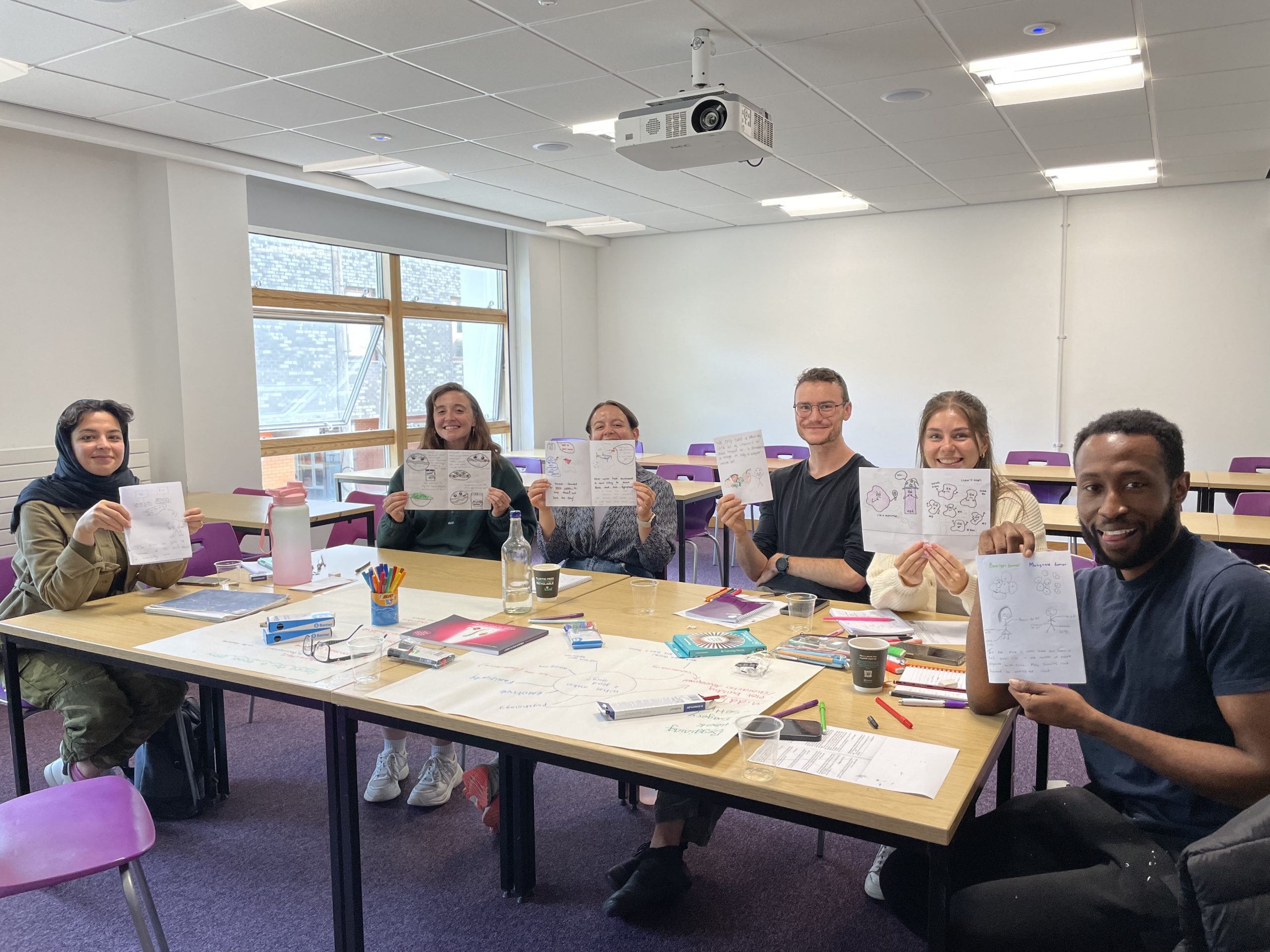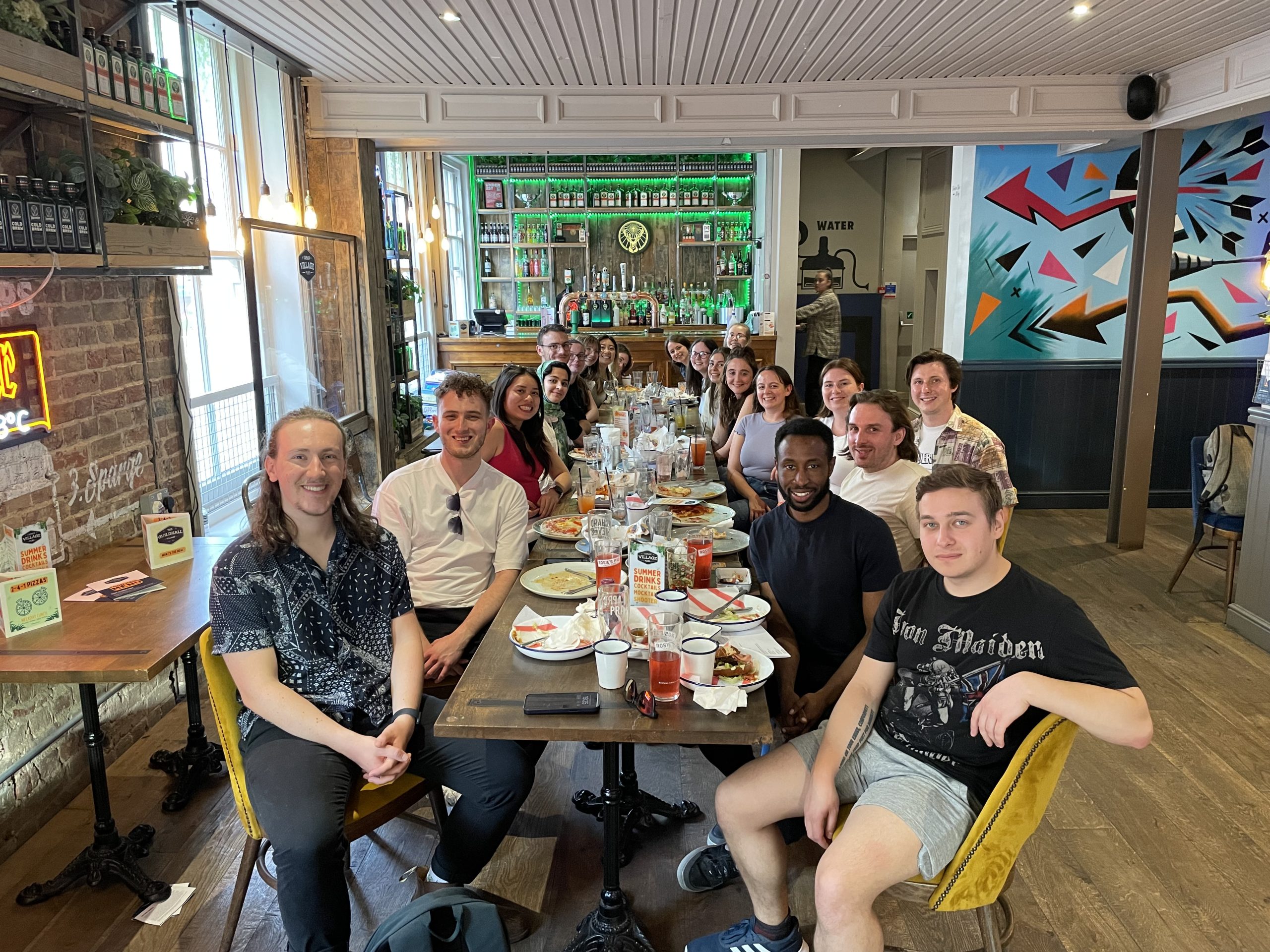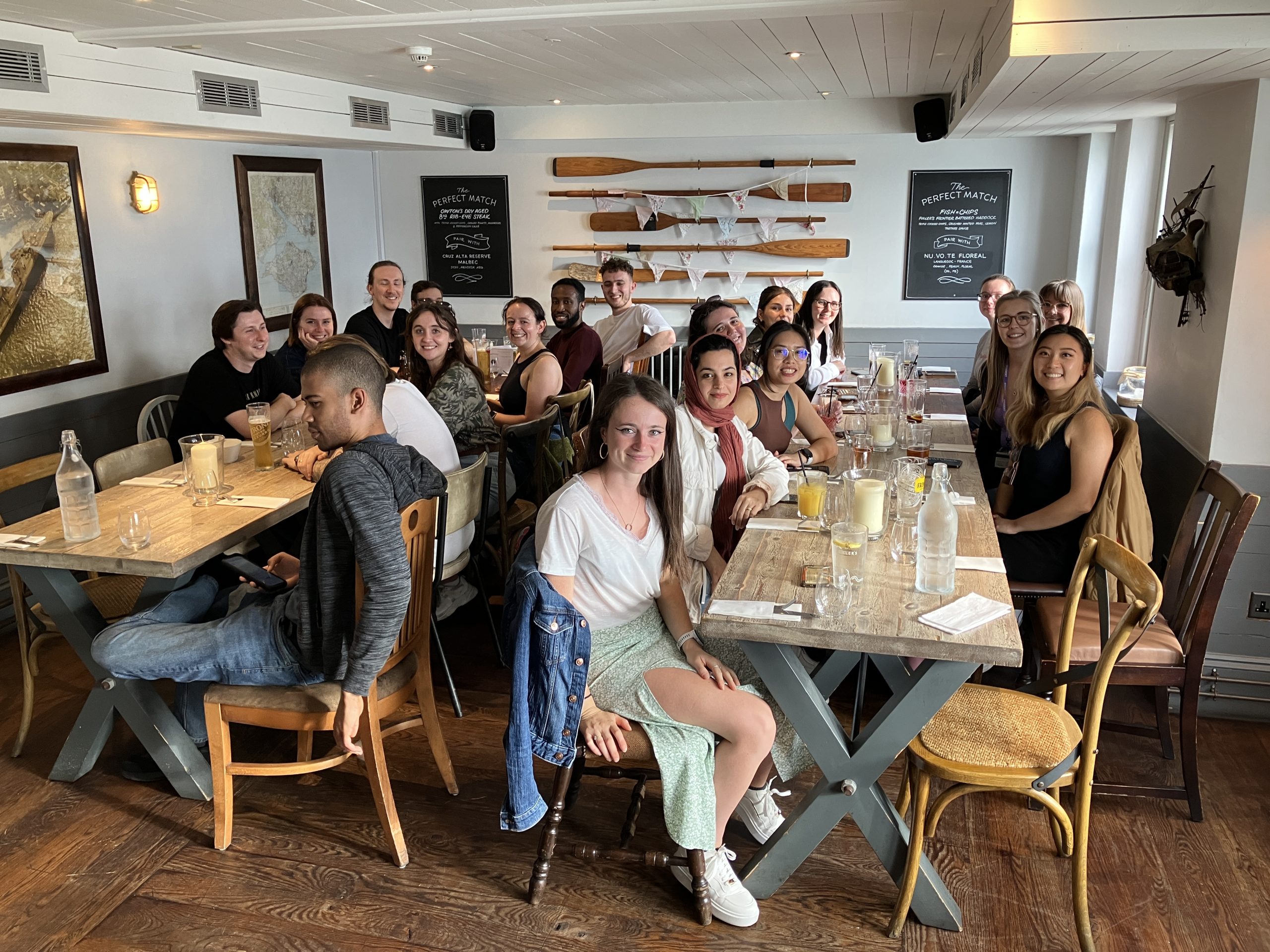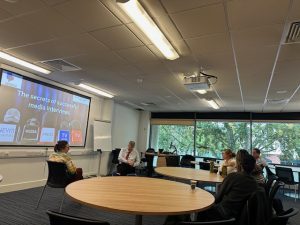Meet Our Students
View the student profiles and photo gallery on this page to give you an insight into the diverse student cohort and DTP training programme.
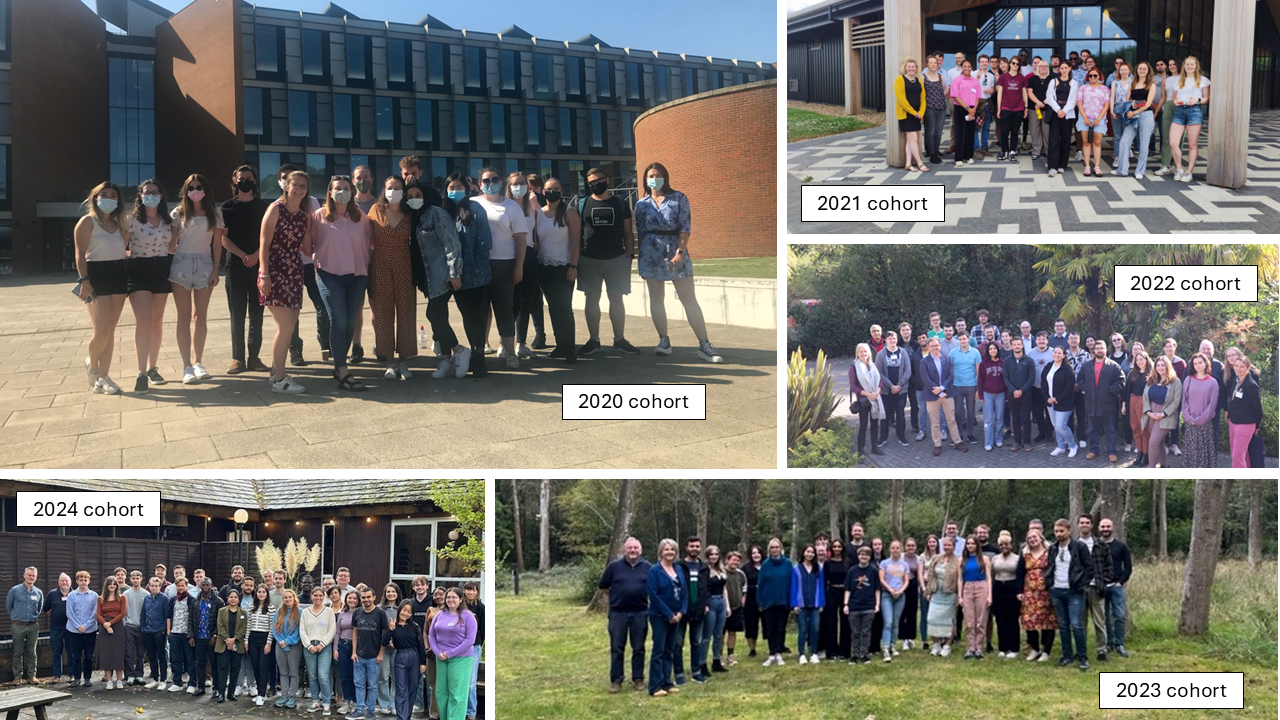
University of Kent
Lydia Bennett
Cohort: 2023
BBSRC Theme: Understanding the rules of life
1st Rotation Project and Final PhD: How does the brain stop us overeating? Neuro-genetic control of eating, and how it changes with age, supervised by Dr Jenny Tullet (University of Kent) and Dr Tim Fenton (University of Southampton)
Professional Internship for PhD Students (PIPS): Sekisui Diagnostics UK Ltd
Lydia studied her BSc in Biochemistry at the University of Kent and graduated with First Class Honours. She really enjoyed her module on the “Biology of Ageing” and decided to study her MSc in a biogerontology laboratory supervised by Dr Jenny Tullet. During this time she wrote her thesis on “how neuronal SKN-1B influences appetite regulation and metabolism in C. elegans” and enjoyed presenting a poster of her work at the BSRA and Biochemical Society: Nutrition and the Biology of Ageing Conference. Now she is really keen to advance her skills as a research scientist during her time as a PhD student in the SoCoBio 2023 cohort.
During Lydia’s free time she is passionate about mountain walking and in her second year of her undergraduate she raised over £3500 for the Meningitis Research Foundation by climbing mount Kilimanjaro. She enjoys spending her time teaching her little boy new milestones and taking him outside. If her son permits her some spare time she enjoys swimming, baking, and watching movies.
Ryan Boughton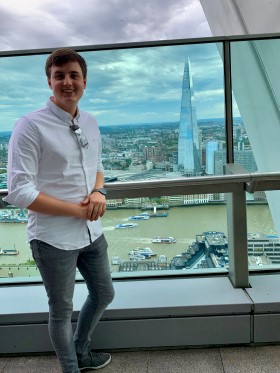
Cohort: 2022
BBSRC Theme: Bioscience for an integrated understanding of health
1st Rotation Project & Final PhD Project : Drug discovery and repurposing to target key bacterial respiratory complexes, supervised by Dr Mark Shepherd (University of Kent), Prof Mark Wass (University of Kent) and Dr Simon Waddell (University of Sussex).
2nd Rotation Project: Next generation mitochondrial inhibitors – a new approach to prevent fungal biofilm formation on medical implants (CASE project), supervised by Dr Campbell Gourlay (University of Kent), Prof Anthony Moore (University of Sussex), and Eric Pagan (Smiths Medical Inc)
Professional Internship for PhD Students (PIPS): CBF Services
Ryan graduated from the University of Birmingham in 2020 with a BSc degree in Biological Sciences and a specialism in genetics. Pursuing his passion for disease research, Ryan undertook an MSc in infectious diseases at the University of Kent, where he obtained a distinction and was awarded the prize for the best performing student in the school of Biosciences. His thesis focused on using Mycobacterium smegmatis as a surrogate organism for Mycobacterium tuberculosis drug repurposing. Following this success, Ryan aspired to achieve a PhD to facilitate his future careers goals of working in drug development to combat antimicrobial resistance.
Currently, Ryan is researching the respiratory protein complex cytochrome bd in Mycobacterium smegmatis, with the aim of understanding this complex in order to identify new drugs to treat Mycobacterium tuberculosis and ESKAPE pathogens.
Jack Bragg
Cohort: 2024
BBSRC Theme: Bioscience for sustainable agriculture and food
1st Rotation Project & Final PhD project: Investigating and harnessing the power of yeast biofilms supervised by Prof Campbell Gourlay (University of Kent) and Prof Vladimir Jiranek (University of Southampton).
2nd Rotation Project: Novel approaches in drug targeting and delivery to combat Gram-negative bacterial pathogens with supervisors Mark Shepherd (University of Kent) and Nicholas Evans (University of Southampton).
Professional Internship for PhD Students (PIPS): Not yet completed PIPS
Oya Canik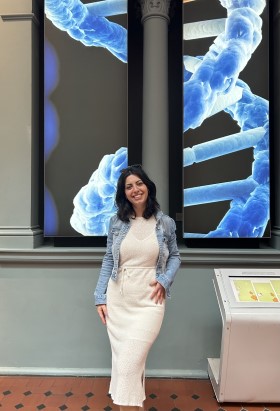
Cohort: 2022
BBSRC Theme: Understanding the rules of life
1st Rotation Project & Final PhD Project: Enhancing rAAV gene therapy manufacturing: Improving rAAV productivity & genome packaging through plasmid and cell engineering, supervised by Prof Mark Smales (University of Kent) and Tim Fenton (University of Southampton).
2nd Rotation Project: Unveiling the role of ApoE in microglial development and function, supervised by Dr Diego Gomez-Nicola (University of Southampton) and Dr Sarah King (University of Sussex).
Professional Internship for PhD Students (PIPS): The Royal Society
Oya has an academic background in Molecular Biology, Genetics, and Bioengineering, holding a Bachelor of Science (Hons) from Bilkent University and a Master of Science (First-Class Honours) from Sabanci University in Turkey. Her Master’s research focused on identifying biomarkers for food allergies from ingested microRNAs, where she developed a novel miRNA isolation method and conducted immunological assays. She also gained teaching experience as a biochemistry and genetics teaching assistant. She researched circadian rhythms and characterization of sleep phenotype and molecular changes in AP-2α and AP-2β mutant mouse models at the Max Planck Institute for Biophysical Chemistry. As a summer intern at INTERGEN Genetics and Rare Diseases Centre in Ankara, she gained experience in human genetics in a corporate setting through rotations in human resources, molecular labs, tissue culture, cytogenetics, and patient report preparation.
She investigated the role of ApoE in microglial development and function at her second project rotation at DGN lab, University of Southampton. She studied the E3 and E4 human alleles in microglial development using E16.5 ApoE3 and ApoE4 mice, performed immunohistochemistry (IHC) with the Iba1 biomarker, and analysed microscopy images of brain sections.
Her PhD project at Smales Lab, University of Kent, focuses on the development and manufacturing of AAV gene therapy for the treatment and prevention of disease. Her research aims to enhance rAAV (Recombinant Adeno-associated Virus) productivity and packaging through plasmid and cell engineering. Producing high-titer viral vectors at scale remains a significant challenge in gene therapy. The primary goal of the project is to increase the functional rAAV, correctly assembled and packaged, titer by engineering AAV vectors and to reduce its cost of production with HEK293F cells.
She enjoys travelling, staying active, exploring creative arts, and practicing mindfulness and meditation during her leisure time to stay balanced in her life.
Claudia Chitty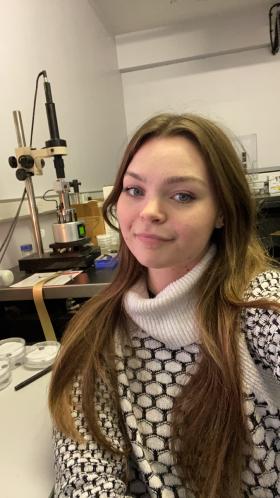
Cohort: 2023
BBSRC Theme: Bioscience for renewable resources and clean growth
1st Rotation Project & Final PhD Project : Capture and degradation of micro-plastics by a synthetic biology approach to engineer novel PET-degrading enzyme linked amyloid nano-material supervised by Dr Wei-Feng (University of Kent), Prof Louise Serpell (University of Sussex) and Dr Tobias von Der Haar (University of Kent).
2nd Rotation Project :Using AI and big data to identify a set of biologically validated drug targets for hard-to-treat cancers, supervised by Dr Frances Pearl (University of Sussex), Michelle Garrett (University of Kent) and Stuart Farrow (CRH, CASE partner).
Professional Internship for PhD Students (PIPS): Unravel Health
In 2023, Claudia graduated from the University of Kent with First Class Honours in Biology and a year in Computing, receiving the Royal Society of Biology best performance prize.
Claudia’s interests lie in bioinformatics, where she has honed computational skills through her rotation projects. Her second project involved developing a machine learning algorithm to predict cancer gene dependencies, enhancing her proficiency in Python and machine learning techniques.
For her final project, Claudia is advancing her work on structurally characterizing novel engineered PET-degrading enzyme-linked amyloid filaments. She co-authored a review on the computational image analysis technique, CPR-AFM, used in this research. Claudia aims to develop this image analysis approach to further the potential of creating an amyloid-based biomaterial with plastic-degrading activity, with the aim to address microplastic pollution.
In her free time Claudia enjoys long distance running, wild swimming, reading and going to music events.
Selale Cuce
Cohort: 2024
BBSRC Theme: Understanding the rules of life
1st Rotation Project &Final PhD project: Novel approaches in drug targeting and delivery to combat Gram-negative bacterial pathogens supervised by Dr Mark Shepherd (University of Kent) and Dr Nicholas Evans (University of Southampton).
2nd Rotation Project: Vesicle trafficking: a novel transformative technology for cellular engineering with supervisors Michelle Garrette (University of Kent), Dan Mulvihill (University of Kent), and Tim Fenton (University of Southampton).
Professional Internship for PhD Students (PIPS): Not yet completed PIPS
Joseph Davies
Cohort: 2022
BBSRC Theme: Understanding the rules of life
1st Rotation Project & Final PhD Project: Live long and prosper: probing the mechanism of a transporter family linked to lifespan extension, protection from diabetes and obesity, and cancer, supervised by Dr Christopher Mulligan (University of Kent) and Prof Jonathan Essex (Universir of study: Year 1ty of Southampton).
2nd Rotation Project: Development of a method for the inference of protein function and application to Mycobacterium tuberculosis, supervised by Prof Mark Wass (University of Kent), Prof Martin Michaelis (University of Kent) and Dr Simon Waddell (University of Southampton).
Professional Internship for PhD Students (PIPS): LabLogic
Emmanuel Denu
Cohort: 2023
BBSRC Theme: Understanding the rules of life
1st Rotation Project : A novel splicing program that controls cancer cell metastasis, supervised by Dr Ben Goult (University of Kent) and Dr Tim Fenton (University of Southampton).
2nd Rotation Project & Final PhD Project: Avoiding the immune system: Using Candida albicans as a tool to understand microbial innate immune evasion strategies, supervised by Rebecca Hall (University of Kent), Alessia Buscaino (University of Kent), Xiangming Xu (NIAB), and Andrew Armitage (University of Greenwich).
Professional Internship for PhD Students (PIPS): UKHSA
Fiona Dresel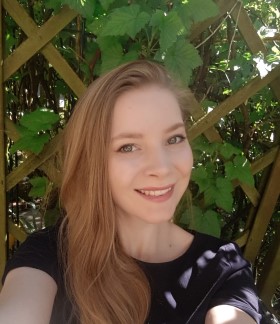
Cohort: 2021
BBSRC Theme: Understanding the rules of life
1st Rotation Project and final PhD Project: Investigating metabolic dysfunction as a driver of Motor Neuron Disease, supervised by Dr Campbell Gourlay (University of Kent) and Prof. Majid Hafezparast (University of Sussex)
2nd Rotation Project: Host-microbe interactions – an innovative approach to health of the nervous system, supervised by Dr Mariana Ezcurra (University of Kent) and Dr David Weinkove (CEO at Magnitude Biosciences).
Professional Internship for PhD Students (PIPS): Algaecytes
Fiona obtained a First class (hons) during her Bachelor’s degree in Biomedical Science at the University of Kent, Canterbury. Whilst studying for her undergraduate degree she had the chance to complete a final year research project where she investigated nutritional immunity as a method to regulate biofilm growth on voice protheses, and its effect on antifungal drug resistance. The results from this project contributed to a larger scale study and have been used to provide insights into the fungal colonisation of medical devices.
She then decided to continue to a Masters level of research and undertake an MSc-R to further improve and increase her cell biology skillset and understanding of yeast. This Masters project investigated the roles of RAS in controlling cell fate using yeast to further elucidate its oncogenic potential. This project gave Fiona the opportunity to develop her skills in cell culturing and genetic manipulation of various microorganisms.
Coming from a biomedical science background, Fiona is particularly interested in the bioscience for an integrated understanding of health. This is why she chose her PhD project on Amyotrophic Lateral Sclerosis (ALS), also known as an incurable and devastating motor neurone disease. The aims of this project is to increase our understanding of the metabolic dysfunction that underpins ALS pathology.
In her free time, Fiona enjoys playing the violin, and exploring new countries and cities while eating all the food. She is also always on the hunt for new books especially on art history and tries to convince the world that Bavaria is actually near Germany.
William Edwards
Cohort: 2022
BBSRC Theme: Understanding the rules of life
1st Rotation Project: Elucidating the role of pH and ion sensing in the pathogenicity of Candida albicans, supervised by Dr Rebecca Hall (University of Kent) and Dr Anthony Lewis (University of Portsmouth).
2nd Rotation Project: A dual approach to the Biofortification of Lettuce/Tomato with Vitamin B12, supervised by Dr Andrew Simkin (University of Kent), Dr Eleftheria Stavridou (NIAB), and Dr Andrew Lawrence (University of Southampton).
Final PhD project: Investigating the role and effect of microbiome in regenerative farming practices supervised by Anastasios Tsaousis (University of Kent), Mark Dumont (University of Southampton), Gary Robinson (University of Kent) and Rob Barker (University of Kent)
Professional Internship for PhD Students (iPIPS): Ohly GmbH
Miya Giragosian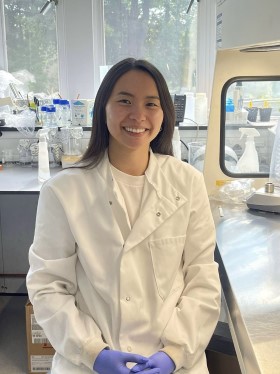
Cohort: 2023
BBSRC Theme: Understanding the rules of life
1st Rotation Project & Final PhD Project: Understanding adult stem cell-niche interactions using the Drosophila intestine, supervised by Dr Jerome Korzelius (University of Kent) and Nahuel Villegas (Vivan Therapeutics, CASE partner).
2nd Rotation Project: Manipulation and engineering of lipid metabolic pathways in CHO cells to enhance processability of cell culture supernantants, supervised by Prof Mark Smales (University of Kent), and Dr Mark Ellis (UCB, CASE partner)
Professional Internship for PhD Students (PIPS): Not yet completed PIP
Miya completed her undergraduate degree in Neuroscience and Psychology at Boston University where she conducted research on behavioural modifications in transgenic Drosophila melanogaster and examined amyloid precursor protein (APP) processing related to the amyloidogenic pathway in Alzheimer’s disease.
She went on to earn an MSc in Neuroscience – graduating with distinction – from the University of Sussex. This research project focused on the locomotor effects of hox gene suppression in the peripheral nervous system (PNS) of larval Drosophila. She stayed in this lab as a research assistant to help develop a novel embryogenesis high-throughput pipeline and conduct touch response assays on microRNA mutant Drosophila.
She chose to pursue a PhD to enhance her lab skills and undertake a long-term project she feels passionate about. Currently, she is in her first year where she gained extensive experience in mammalian cell culture and various analytical techniques from the second rotation. Her final PhD project investigates the role of intestinal stem cell (lineage) in tumour development, engaging in a variety of genetic manipulations in adult Drosophila, to better understand what molecules influence malignant cell overgrowth.
During her free time Miya likes indoor bouldering and playing pickleball with friends as well as travelling to new places and trying different cuisines. She is passionate about nature photography and music – with the interesting habit of listening to the same song on repeat until she is tired of it.
Christian Hollingbery
Cohort: 2023
BBSRC Theme: Bioscience for sustainable agriculture and food
1st Rotation Project & Final PhD Project: Using a holistic and multidisciplinary approach to investigate the effects of regenerative agriculture on the soil microbiome, animal health and CO2 emissions, supervised by Dr Anastasios Tsaousis (University of Kent) and Dr Mark Dumont (University of Southampton) and Dr Robert Baker (University of Kent).
2nd Rotation project: Boosting plant disease resistance RNAi hairpin introduction, supervised by Dr Helen Cockerton (Univeristy of Kent), Prof Alessia Buscaino (Univeristy of Kent), Prof Xiangming Xu (NIAB), and Dr Andrew Armitage (University of Greenwich).
Professional Internship for PhD Students (PIPS): not yet completed PIPS
Christian has an academic background in biological sciences. He holds a BSc in biotechnology from the University of Edinburugh, which included courses in synthetic, molecular, microbial and plant biology. His interest in sustainable farming led him to work for the next two years with a company producing sustainable protein from insects grown using organic waste products. During this time he improved the production process for the company, carried out research and applied for grant funding.
He applied to the SoCoBio program in order to gain experience and expertise in new solutions for sustainable and future farming. Christian has just begun his second rotation project but his first rotation project on understanding how sustainable, regenerative farming practices, such as biochar and mob grazing, can affect the soil microbiome had a major focus on protists, as they are major ecosystem engineers in the soil environment.
Jacob Hudson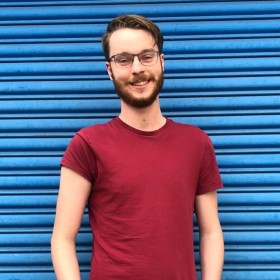
Cohort: 2021
BBSRC Theme: Bioscience for sustainable agriculture and food
1st Rotation Project: How to build a super phage: Understanding and improving bacteriophage biocontrol of Pseudomonas syringae pathovars, supervised by Dr Matevz Papp-Rupar (NIAB) and Dr Franklin L. Nobrega (University of Southampton).
2nd Rotation Project: Gut bacteria and the brain: the surprising impact of bacteriophages, supervised by Dr Franklin Nobrega (University of Southampton) and Dr Jessica Teeling (University of Southampton).
Final PhD Project: Identification of novel antifungals to prevent food spoilage, supervised by Dr Rebecca Hall (University of Kent)
Professional Internship for PhD Students (PIPS): Edventure Frome
Jake Hudson was awarded his BSc (Hons) in Biochemistry from the University of Surrey, before joining the SoCoBio DTP.
As part of his undergraduate degree he undertook a placement year at Public Health England Porton, analysing of the antibody isotypes generated against ebolavirus within an ebolavirus disease survivor cohort using flow cytometry and ELISA. For his undergraduate dissertation, he studied the role of dengue viral protein NS1 in vascular haemorrhage by examining the impact of dengue NS1 on the endothelial glycocalyx in endothelial cell and pericyte co-cultures.
Jake loves caring for his houseplants and growing vegetables in his spare time, and he also volunteers at a local community garden. Fungi are a key part of the soil-borne communities supporting plant growth, leading Jake to want to redirect his work into the fungal realm. His current project aims to identify and isolate novel antifungals from the bacteria which naturally compete with both plant and human pathogenic fungi, specifically Rhizopus spp. He enjoys doing this with traditional wet-lab purification and genetic manipulation, but also wants to develop his skills as a bioinformaticion.
Outside of plants he loves climbing, hiking, and playing board games. He hopes a PhD will lead him into a career in academia, whilst helping him to develop his skills in education, teaching, and science communication. He also hopes to develop his business entrepreneurship and development skills, as business-university collaborations and partnerships are of great interest to him.
Thomas Jamieson
Cohort: 2023
BBSRC Theme: Understanding the rules of life
1st Rotation Project & Final PhD Project: Manipulation and engineering of lipid metabolic pathways in CHO cells to enhance processability of cell culture supernantants, supervised by Prof Mark Smales (University of Kent), and Dr Mark Ellis (UCB, CASE partner)
2nd Rotation Project: Murein succuli as ocular drug delivery systems, Stefano Biagini (University of Kent), Darren Pitt (VisuNano), Christopher Serpell (University of Kent), and Gary Robinson (University of Kent).
Professional Internship for PhD Students (PIPS ) : UCB Pharma
Olivia Keers
Cohort: 2022
BBSRC Theme: Bioscience for an integrated understanding of health
1st Rotation Project & Final PhD Project: Designing the next generation of small molecule cell surface targeting agents, supervised by Dr Jennifer Hiscock (University of Kent), Prof Michelle Garrett (University of Kent), Prof Jonathan Essex (University of Southampton), and Dr Hamish Ryder (CRUK Therapeutic Discovery Laboratories).
2nd Rotation Project: Design of SSAs for novel small molecule human therapeutics, supervised by Prof Michelle Garrett (University of Kent), Dr Jennifer Hiscock (University of Kent), Dr Tim Fenton (University of Southampton), and Mr Sashi Kommuclinician – (Clinician and surgeon), Department of Urology, East Kent Hospitals University NHS Foundation Trust.
Professional Internship for PhD Students (PIPS): UKHSA
Olivia graduated from the University of Kent with a First Class (Hons) Integrated Masters in Chemistry. Her Masters’s project was entitled ‘Using Solution-State NMR To Elucidate Structure Interactionns Between Bacterial Phospholipid Nanodiscs And SSAs’, supervised by Prof Jennifer Hiscock. Olivia became very interested in the anti-microbial and anti-cancer properties of SSAs and has chosen to continue in this area for her 1st and 2nd rotation projects.
Graham Lunn
Cohort: 2024
BBSRC Theme: Bioscience for an integrated understanding of health
1st Rotation Project & Final PhD project: Development of Vitamin B12 Nanobody Conjugates For the Radiation Triggered Release of Therapeutic Agents supervised by Dr David Beal (University of Kent), Dr Andrew Lawrence (University of Southampton) and Prof Mark Smales (University of Kent).
2nd Rotation Project: Predicting blackcurrant gallmite development in the spring supervised by Prof Xiangming.xu (NIAB) and Adrian Harris (NIAB), Dr Alan Stewart(University of Sussex), and Rob Saunders (Blackcurrent Grower Association)
Professional Internship for PhD Students (PIPS): Not yet completed PIPS
Graham obtained a First Class Honours BSc degree in Biology with Chemistry, at the University of Southampton. He has a background in Medicinal Chemistry, spending many years in the pharmaceutical industry, where he designed and made candidate drugs for inflammatory and infectious respiratory diseases. Additionally, he has several years’ experience in pharmacovigilance, having worked for MHRA, the UK national medicines regulator.
In his PhD project, Graham is looking to design and make novel, potent, small molecule inhibitors, with good drug-like properties, to target bacterial cytochrome protein complexes that are important during infection.
Outside of his PhD, enjoys football and hiking.
Ateeqa Naim
Cohort: 2023
BBSRC Theme: Understanding the rules of life
1st Rotation Project & Final PhD Project: An industrial collaboration to develop new microscopy tools to image ATP usage in muscle, supervised by Dr Neil Kad (University of Kent) and Jeremy Graham (Cairn Research, CASE partner).
2nd Rotation Project:Elucidating the mechanisms of mechanochemical crosstalk between ion transport, mitotic spindle and chromosome dynamics during breast epithelial morphogenesis, supervised by Salah Elias (University of Southampton) and Ruth Murrell-Lagnado (University of Sussex).
Professional Internship for PhD Students (PIPS): Not yet completed PIPS
Mahzad Nasir Shalal
Cohort: 2024
BBSRC Theme: Understanding the rules of life
1st Rotation Project & Final PhD project: Vesicle trafficking: a novel transformative technology for cellular engineering supervised by Prof Michelle D. Garrett – University of Kent), Dr Tim Fenton (University of Southampton), and Prof Dan Mulvihill ( University of Kent).
2nd Rotation Project: Unlocking DNA Repair Pathways: Industrial Collaboration and Cutting-Edge Technology, supervised by Prof Neil Kad (University of Kent), Prof Peter McHugh (University of Oxford) and Dr Mina Brett Pitt (Lumicks, CASE Partner)
Professional Internship for PhD Students (PIPS): Not yet completed PIPS
Mahzad holds a Master of Science in Biomedicine from the University of Kent and a Bachelor’s degree in Cellular and Molecular Biology. She has extensive research experience in molecular biology, cancer genetics, and bioinformatics. With a strong interest in the intersection of biotechnology and human health, Mahzad is now pursuing a Ph.D. in biotechnology, driven by her passion for advancing healthcare through innovative research. Her Ph.D. project focuses on vesicle trafficking, a transformative technology for cellular engineering, where she explores novel methods for drug delivery in cancer research. Her research spans biotechnology, cellular engineering, cancer research, and biotherapeutic development, underscoring her commitment to progress in these fields.
Dmytro Prasolov (CASE Studentship)
Cohort: 2022
BBSRC Theme: Understanding the rules of life
1st Rotation Project & Final PhD Project: Next generation mitochondrial inhibitors – a new approach to prevent fungal biofilm formation on medical implants (CASE Project), supervised by Dr Campbell Gourlay (University of Kent), Prof Anthony Moore (University of Sussex), and Eric Pagan (Smiths Medical Inc).
2nd Rotation Project: Elucidating the role of pH and ion sensing in the pathogenicity of Candida albicans, supervised by Dr Rebecca Hall (University of Kent) and Dr Anthony Lewis (University of Portsmouth).
Professional Internship for PhD Students (PIPS): ICU medical
Caitlin Price
Cohort: 2024
BBSRC Theme: Understanding the rules of life
1st Rotation Project and Final PhD Project: Spider venomics – understanding the genomics of venom in spiders supervised by Dr Marta Farré Belmonte (University of Kent), Prof Adam Eyre-Walker (University of Sussex), and Dr Mark Wass (University of Kent).
2nd Rotation Project: Variation in the mutation rate across the human genome with supervisors Adam Eyre-Walker(University of Sussex), Marta Farre Belmonte (University of Kent), and Frances Pearl (University of Sussex).
Professional Internship for PhD Students (PIPS): Not yet completed PIPS
Caitlin graduated with a First Class Honours degree in Zoology from the University of Southampton in 2023, where she completed her final year research project on Population Genomics of wild Saccharomyces species. This experience inspired Caitlin to pursue further genomic and bioinformatic research, leading to an internship at the University of Sussex. During the internship, she utilised bacterial genome data to observe and identify evolutionary patterns in genome structure.
Following this project, Caitlin chose to pursue a PhD in Evolutionary Genomics, aiming to develop her bioinformatic and wet-lab skills, whilst contributing to a field she is passionate about. Currently, Caitlin is in her 2nd year where she is looking into reconstructing ancestral genomes across the spider clade.
In Caitlin’s free time, she enjoys hiking, camping, reading and going to as many concerts as possible.
Matthew Rice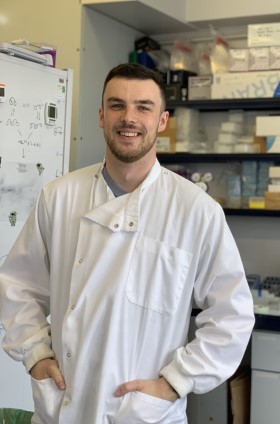
Cohort: 2022
BBSRC Theme: Understanding the rules of life
1st Rotation Project: The gut microbiome-brain axis: An important player in behaviour and brain function, supervised by Dr Marina Ezcurra (University of Kent), Prof Amritpal Mudher (University of Southampton).
2nd Rotation Project & Final PhD Project: Using NMR to enable the development and derive the mode of action of novel antimicrobial technologies, supervised by Dr Jose Ortega-Roldan (University of Kent), Dr Jennifer Hiscock (University of Kent), Dr Neil Wells(University of Southampton), and Dr Charlotte Hind (Public Health England (PHE)).
Professional Internship for PhD Students (PIPS): UK Health and Security Agency (UKHSA)
Matthew completed a Bachelor of Science degree at the University of Kent and graduated with a First Class (with Honours) in Biochemistry. For his final year project he carried out a bioinformatics project investigating novel protein:protein interactions and developed a keen interest in the effects these may have. As a result, he then completed a Masters by research and wrote a thesis entitled: “Amyloid Precursor Protein: An adhesion protein and a novel talin binder”.
Matthew completed his first rotation in his PhD investigating the aggregation of amyloid peptides using the C. elegan model organism. He then moved to his second rotation investigating the permeability of small molecules across biological membranes. Here he discovered another interest in the mode of action of novel antimicrobials being developed to tackle antimicrobial resistance.
Matthew is now investigating the passive permeability of a number of different compounds across several membrane types to generate a set of parameters to better inform drug development and improve the uptake of antimicrobial compounds. He is also working to develop new techniques to help contribute to a multi-disciplinary research consortia also aiming to develop novel antimicrobial compounds.
Outside of his PhD Matthew enjoys watching football, reading and travelling. He also enjoys teaching and outreach and regularly takes part in events to help promote careers in science particularly for individuals who are not sure how to access science.
Afsheen Shahbaz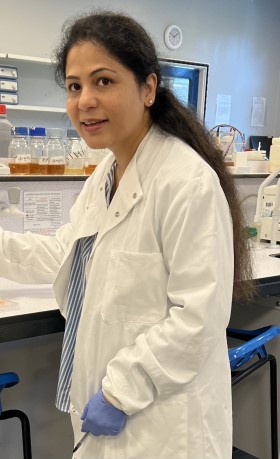
Cohort: 2024
BBSRC Theme: Understanding the rules of life
1st Rotation Project: Applying new technologies to dissect RNA dynamics in response to cellular stress supervised by Ben Towler (University of Sussex), Mark Smales (University of Kent), and Prof Sarah Newbury (University of Sussex).
2nd Rotation Project: Development of transformative and integrative Atomic Force Microscopy methods for structural analysis of individual molecules with supervisors Wei-Feng Xue (University of Kent),and Louise Serpell (University of Sussex).
Final PhD project: Effects of secondary structure on the expression and stability of RNA Therapeutics supervised by Tobias von der Haar (University of Kent), Dr Ben Towler (University of Sussex), Prof. Mark Smales (University of Kent), and Dr. Wei-Feng Xue (University of Kent).
Professional Internship for PhD Students (PIPS): Not yet completed PIPS
Afsheen holds a BSc (Hons with Distinction) and an MSc in Biochemistry (Distinction) from the University of Karachi, where she researched the protein matrix of renal stones and its role in urolithiasis. In 2023, she earned a second MSc in Biomedicine (Distinction) from the University of Kent, with a dissertation focused on expanding the substrate scope of thermophilic omega transaminases for synthesizing chiral amines as pharmaceutical intermediates. Her strong interest in molecular biology has inspired her to pursue a PhD to further develop her lab skills and contribute meaningfully to healthcare innovation through research.
In her first rotation of the SoCoBio DTP PhD, Afsheen worked with the Towler and Smales Labs on “Applying new technologies to dissect RNA dynamics in response to cellular stress”. This project investigates how RNA regulatory machinery influences extracellular vesicle (EV) biology and cellular stress responses. She employed molecular biology, biotechnology, and bioinformatics techniques—including RNA-seq and SLAM-seq, to study the regulation, stability, and function of EV-derived RNA in human cells. She further aims to explore the role of RNA-binding proteins in RNA sorting and decay across various cell lines to understand how exogenous RNA behaves under suboptimal conditions such as in a diseased state, with the goal to enhance its therapeutic potential.
Currently, in her second rotation with the Wei-Feng and Louise Labs, Afsheen is contributing to the “Development of transformative Atomic Force Microscopy (AFM) methods for structural analysis of individual amyloid fibrils”. This work focuses on amyloid fibrils associated with Alzheimer’s diseases and other tauopathies. Afsheen is developing in vitro experimental systems to mimic ex vivo tau structures, using advanced AFM imaging to map the 3D shapes of recombinant tau fibrils. This structural mapping supports the identification of polymorphic amyloid populations and their links to patient-derived structures, helping to reduce reliance on animal and human samples and contributing to structure-based therapeutic design.
In her free time, Afsheen enjoys reading fiction, experimenting with new recipes, and travelling.
Matt Shaw
Cohort: 2022

BBSRC Theme: Understanding the rules of life
1st Rotation Project & Final PhD Project: Understanding Drug Resistance in Human Fungal Pathogens, supervised by Prof Alessia Buscaino (University of Kent) and Prof Georgios Giamas (University of Sussex).
2nd Rotation Project: Understanding the effects of regenerative agriculture on the soil microbiome, animal health and CO2 emissions, supervised by Dr Anastasios Tsaousis (University of Kent), Dr Marc Dumont (University of Southampton), and Dr Robert Barker (University of Kent).
Professional Internship for PhD Students (PIPS): NIAB Cambridge
Matt graduated from the University of Leicester in 2021 with a first-class degree in Biological Sciences (Genetics), having done an analytical project based on amphibian fungal pathogens. Matt then joined the Buscaino lab at the University of Kent where he studied a research Masters in which he used CRISPR to study the evolutionary role of genome instability in human fungal pathogens. He presented this research during the 2022 British Yeast Group conference.
Matt’s first rotation and main project with the SoCoBio DTP looks at the role of genomic instability in fungal evolution. Specifically, he uses a CRISPR system developed during his Masters to study the evolution of Candida albicans, focussing on the acquisition of drug resistance as well as looking at the role of chromosomal rearrangements in fungal speciation.
His second rotation used metagenomic techniques to study the fungal composition of the soil and rumen microbiomes. The aim of this project was to identify agricultural practices which are more conducive to healthy microbiomes and generate fewer greenhouse gasses.
Following his PhD, Matt aspires to remain in research, utilising the experience he has gained to study animal and plant fungal pathogens with the aim of safeguarding biodiversity.
In his spare time Matt enjoys climbing, surfing, salsa, badminton, running and playing the guitar.
Mackenzie Stevens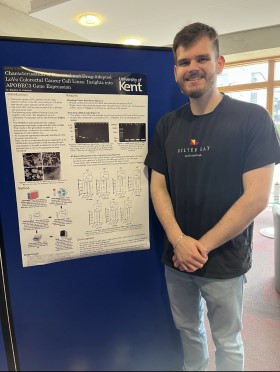
Cohort: 2024
BBSRC Theme: Bioscience for an integrated understanding of health
1st Rotation Project & Final PhD project: A novel approach to the development of next-generation antimicrobials: Targetting bacteria with light supervised by Dr Jennifer Hiscock- University of Kent), Dr George Williams (University of Southampton), and Dr Charlotte Hind (UKHSA)
2nd Rotation Project: Spider venomics – understanding the genomics of venom in spiders with supervisors Marta Farré Belmonte (University of Kent), Adam Eyre Walker (University of Sussex), and Mark Wass (University of Kent).
Professional Internship for PhD Students (PIPS): Not yet completed PIPS
Mackenzie studied his BSc at the University of Kent in Biology and graduated with a 2:1. During his time at the University of Kent, he found cancer biology an extremely interesting and rewarding field of research. He then went on to study a taught Master’s degree in Cancer Biology and Therapeutics at the University of Kent, attaining a distinction. Mackenzie wrote his thesis with Dr Nerissa Kirkwood on the “Characterisation of Parental and Drug-Adapted LoVo Colorectal Cancer Cell Lines: Insights into APOBEC3 Gene Expression”.
Throughout his time at university, Mackenzie worked in a kitchen, and has done for 8 years. His time in the culinary sector taught him a plethora of valuable skills that he uses daily in a chemistry lab. Though he still enjoys cooking, he aspires to achieve a doctorate to facilitate a future career in drug development to combat antimicrobial resistance with next-generation antimicrobial compounds.
Simon Thundow (CASE Studentship)
Cohort: 2022
BBSRC Theme: Bioscience for sustainable agriculture and food
1st Rotation Project & Final PhD Project: Safeguarding UK hop production from Verticillium nonalfalfae: Using genomics to develop race-specific diagnostics and generate Verticillium resistant hop through Host Induced Gene Silencing (CASE Project), supervised by Dr Helen Cockerton (University of Kent, Dr Alessia Buscaino (University of Kent), and Prof Xiangming Xu (NIAB East Malling).
2nd Rotation Project: Phenotypic constraints on crop improvement and the domestication of novel crops, supervised by Dr Mark Chapman (University of Southampton), Dr Yann Bourgeois (University of Portsmouth), and Dr Rocio Perez-Barrales (University of Portsmouth).
Professional Internship for PhD Students (PIPS): Wye Hops Ltd
Hannah Uri
Cohort: 2021
BBSRC Theme: Understanding the rules of life
1st Rotation Project and Final PhD Project: Identification of determinants of virus phenotypes, including SARS Coronavirus-2/COVID-19, supervised by Dr Mark Wass (University of Kent), Martin Michaelis, (University of Kent) and Christopher McCormick (University of Southampton).
2nd Rotation Project: Using long-read sequencing to study structural genomic variants in animals and plants, supervised by Dr Marta Farré (University of Kent), Dr Suzanne Litthauer (NIAB-EMR) and Dr Alessia Buscaino (University of Kent).
Natasha Ward
Cohort: 2022
BBSRC Theme: Bioscience for an integrated understanding of health
1st Rotation Project & Final PhD Project: Memory molecules and where to find them – does our brain store memories in binary format? supervised by Dr Ben Goult (University of Kent), and Prof Kevin Staras (University of Sussex).
2nd Rotation Project: What is the extent of structural diversity and individuality of amyloid protein assemblies? supervised by Dr Wei-Feng Xue (University of Kent) and Prof Louise C Serpell (University of Sussex)
Professional Internship for PhD Students (PIPS): Royal Botanical Gardens, Kew
James White
Cohort: 2024
BBSRC Theme: Understanding the rules of life
1st Rotation Project & Final PhD project: Unlocking DNA Repair Pathways: Industrial Collaboration and Cutting-Edge Technology supervised by Prof Neil Kad- University of Kent), Prof Peter McHugh (University of Oxford), and Dr Mina Brett Pitt (Lumicks, CASE Partner).
2nd Rotation Project: Development of Vitamin B12 Nanobody Conjugates For the Radiation Triggered Release of Therapeutic Agents with supervisors David Beal (University of Kent), Andrew Lawrence (University of Southampton), Mark Smales (University of Kent).
Professional Internship for PhD Students (PIPS): Not yet completed PIPS
NIAB
Joy Adzovie
Cohort: 2024
BBSRC Theme: Bioscience for renewable resources and clean growth
1st Rotation Project: Manipulating root-microbe interactions to improve plant responses to climate change stressors with supervisors Dr William King (University of Southampton), Dr Binuraj Menon (University of Portsmouth), and Dr Eleftheria Stavridou (NIAB East Malling).
2nd Rotation Project and Final PhD Project: Business as usual is unsustainable: we must produce healthier foods, using appropriate phosphorus inputs with supervisors Eleftheria Stravridou (NIAB), Helen Cockerton (University of Kent), Louisa Robinson Boyer (NIAB) and Mark Chapman (University of Southampton).
Professional Internship for PhD Students (PIPS): Not completed PIPS yet
Prince Cobbinah
Cohort:2024
BBSRC Theme: Bioscience for Sustainable Agriculture and Food
1st Rotation Project: The role of rhizosphere and endophyte microbiome in resistance to strawberry crown rot – Phytophthora cactorum, supervised by Dr Matevz Papp-Rupar – NIAB East Malling), Dr Marc Dumont (University of Southampton), and Prof Xiangming Xu (NIAB East Malling).
2nd Rotation Project & Final PhD project: Understanding the interplay of plant genetics and microbiome for improved disease resistance with supervisors Matevz Papp-Rupar (NIAB), Tomilav Cernava (University of Southampton), and Mark Chapman (University of Southampton).
Professional Internship for PhD Students (PIPS): Not completed PIPS yet
Prince graduated from the Kwame Nkrumah University of Science and Technology, Kumasi, Ghana in 2013 with BSc. Natural Resources Management. His undergraduate thesis focused on how surface mining greatly impacts negatively the forest. Prince is fascinated by crop health, in view of this he furthered his education at the same university where he graduated in 2019 with Master of Philosophy in Crop Protection (Plant Pathology). His master’s thesis investigated the health status of okra seeds in the Ashanti Region of Ghana. Before joining SoCoBio in the UK, he was a lecturer at the University for Development studies, Ghana where he taught undergraduate courses at the Department of Forestry and Forest Resources management.
For his first rotation research in his PhD, Prince seeks to understand and uncover the role of rhizosphere and endophyte microbiome in resistance to strawberry crown rot – Phytophthora cactorum with Dr Matevz Papp-Rupar (NIAB), Dr Marc Dumont (University of Southampton) and Prof Xiangming Xu (NIAB). The oomycete pathogen Phytophthora cactorum can cause severe impact in strawberry production. It can spread with mobile zoospores and can reduce fruit quality, yield and in severe cases kill up to 30% of plants even in clean soilless systems. His first rotation research project would moreover explore the role of beneficial and biocontrol microbes and contribute to fundamental understanding of pathogen-plant-microbiome interactions. His research also has the potential to provide novel disease control products and strategies.
In his private time, Prince is really jovial and also enjoys watching documentaries.
Joshua Fennell
Cohort: 2023
BBSRC Theme: Bioscience for Sustainable Agriculture and Food
1st Rotation Project & Final PhD Project: Adaptation of cutting-edge photonic tools to understand food spoilage biology, supervised by Prof Xiangming Xu (NIAB), Prof Adrian Podoleanu (University of Kent), and Dr Matevz Papp-Rapar (NIAB).
2nd Rotation Project: Improve strawberry growth consistency in vertical farming supevised by Dr Mark Else (NIAB), Dr Eleftheria Stavridou ( NIAB) and Dr Andrew Simkin (University of Essex)
Professional Internship for PhD Students (PIPS): Not completed PIPS yet
University of Portsmouth
Alex Cahill 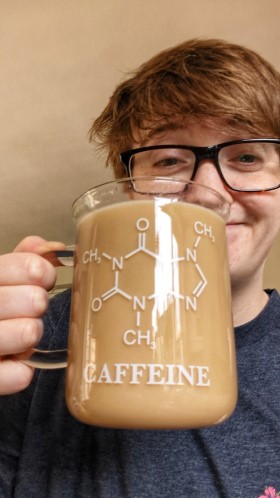
Cohort: 2023
BBSRC Theme: Bioscience for renewable resources and clean growth
1st Rotation Project :Engineering enzymes for the deconstruction of waste polyester textiles, supervised by Prof Andy Pickford (University of Portsmouth), Dr Tobias von der Haar (University of Kent).
2nd Rotation Project & Final PhD Project: De novo design of metallocorrin enzymes, supervised by Dr Bruce Lichtenstein (University of Portsmouth), Prof Martin Warren (University of Kent), and Prof Ross Anderson (University of Bristol)
Professional Internship for PhD Students (PIPS): not yet completed PIPS
Alex graduated from the University of Portsmouth in 2022 with a BSc in Biochemistry. Their final year project, supervised by Prof. Steve Wood, focused on using X-ray crystallography data to solve a protein-ligand structure. During this project Alex developed a strong interest in the structure-function relationship of proteins and how the structure of a protein can be modified in order to give it a desired function.
Alex then went on to complete an MRes within the Centre for Enzyme Innovation (CEI) at the University of Portsmouth. Their project, supervised by Prof. Andy Pickford and in collaboration with scientists at the National Renewable Energy Laboratory (NREL) in Colorado, focused on engineering IsMHETase to improve the thermostability and durability of the enzyme. Ideonella sakaiensis MHETase is the second enzyme in a synergistic two enzyme mechanism for the hydrolysis of polyethylene terephthalate (PET) plastics. During this project Alex developed skills in protein production and purification, as well as in the biophysical characterisation of enzymes using methods such as differential scanning calorimetry (DSC) and high-pressure liquid chromatography (HPLC).
Outside of the lab, Alex enjoys reading sci-fi, fantasy, and horror books, drawing, and playing computer games.
Matthew Ellis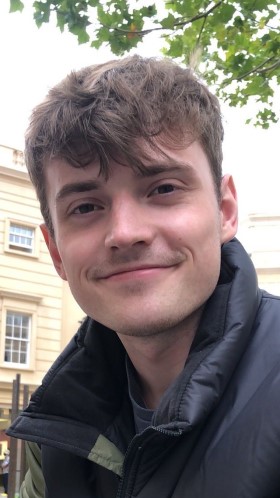
Cohort: 2024
BBSRC Theme: Bioscience for renewable resources and clean growth
1st Rotation Project : Targeted surface modification with de novo designed enzymes supervised by Dr Bruce R. Lichtenstein (University of Portsmouth), Prof Andrea E. Russell (University of Southampton), Prof Ross Anderson (University of Bristol) and Prof Andy Pickford (University of Portsmouth).
2nd Rotation Project: Exploring the role of 4-stranded i-motif structures in gene regulation with supervisors Samuel Robson (University of Portsmouth), Benjamin Towler (University of Sussex), Garry Scarlett (University of Portsmouth).
Professional Internship for PhD Students (PIPS): not yet completed PIPS
Matt graduated with a BSc in Biochemistry from the University of Portsmouth in 2023. He subsequently joined Dr Bruce R. Lichtenstein’s group at the Centre for Enzyme Innovation, completing his MRes in 2024. His research utilised machine learning tools to design de novo binders for a series of synthetic dyes. Future spectroscopic analysis of these designs is expected to yield design strategies for rationally fine-tuning their photophysical properties.
For his PhD, Matt is focused on designing redox-active proteins to functionalise synthetic polymers – potentially contributing to the cyclic recycling of plastic waste.
Ana Ferreira (Industry co-funded Studentship)
Cohort: 2023
BBSRC Theme: Bioscience for an integrated understanding of health
Project Title and supervisors: Comparative effects of alcohol and GABA mimetics on the brain-gut-microbiota (BGM) function, supervised by Prof Jerome Swinny (University of Portsmouth), Dr Delia Belelli (University of Portsmouth), and Dr Murphy Wan, (University of Portsmouth).
Professional Internship for PhD Students (PIPS): not yet completed PIPS
Tia Fletcher
Cohort: 2023
BBSRC Theme: Understanding the rules of life
1st Rotation Project & Final PhD Project : Exploiting natural variants in potassium channel genes to understand their roles in neural function, behaviour and development, supervised by Dr Annie Godwin (University of Portsmouth), Diana Baralle (University of Southampton), and Dr Mariana Vargas-Caballero (University of Southampton), and Prof Matthew Guille (University of Portsmouth).
2nd Rotation Project: Investigating the mechanisms controlling stability and degradation of nucleic acids in mitochondria, supervised by University Dr Robert Baldock (University of Portsmouth), Prof Garry Scarlett (University of Portsmouth), and Prof Sarah Newbury (University of Sussex).
Professional Internship for PhD Students (PIPS): Sense About Science
Tia completed her BSc in Biomedical Science at the University of Portsmouth (including a placement year in Pathology at Spire Hospital Portsmouth). Her main areas of interest are developmental biology and genetic disease, these led her to complete an MRes focusing on modelling novel, rare genetic diseases in the tadpole. She is also passionate about making research more accessible for the general population and is currently working on webpages for the Human Disease Gene Website Series aimed at patients with rare genetic conditions and their families.
Her PhD project aims to use the western clawed frog (Xenopus tropicalis) to model variants in potassium channel genes. Her first gene of interest is KCNC4 which encodes a voltage gated potassium channel. Currently, Tia is using the CRISPR-Cas9 gene editing system to knock out KCNC4 in X. tropicalis to generate the disease model. She is then analysing morphological, behavioural and electrophysiological changes present in tadpoles carrying genetic mutations in KCNC4. This will allow scientists and clinicians to understand the pathogenic mechanisms of the disorder more completely. She will then apply these techniques to other potassium channel genes to help improve diagnosis and interventions for people who have pathogenic variants in them.
Grace Heath (Industry co-funded Studentship)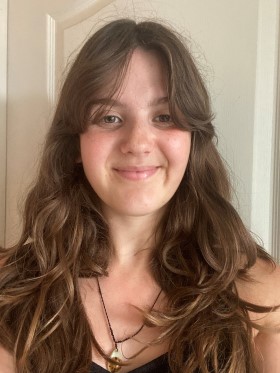
Cohort: 2024
BBSRC Theme: Bioscience for sustainable agriculture and food
Project Title and supervisors: Development and evolution of diverse corona structures in Narcissus (Amaryllidaceae) supervised by Natalia Przelomska (University of Portsmouth), Dr Steven Dodsworth (Birkbeck, University of London), Dr John David and Dr Kálmán Könvyes (RHS, CASE Partner).
Professional Internship for PhD Students (PIPS): not completed PIPS yet
Grace Graduated with a 1st class BSc in Biology from the University of Portsmouth in 2024, during which between her 2nd and 3rd year she worked as a research assistant in Dr Steven Dodsworth’s lab, researching whether nectar spurs had convergently evolved using the same genetic mechanism in three species of Lamiales. This work was continued in her Honours Project where she investigated whether a gene, CYCD3;3 is present, and at which point in development of the nectar spur it is present, in Cymbalaria muralis.
Her PhD hopes to answer both developmental and evolutionary questions surrounding a novel floral organ, the corona, in the genus Narcissus. It is a structure who’s developmental identity exists unusually between the tepal and staminoid whorls. With little known about the genetic basis of coronas in Narcissus, the main purpose of this project is to discover which genes and developmental switches are contributing to this floral organ’s development and evolution. Phylogenetic approaches will be used to answer macroevolutionary questions, such as how many times this structure has evolved.
Grace has a curiosity towards the diverse complexities that nature presents and wishes to discover some of the mechanisms underpinning this. She hopes to use the experience gained in this project to continue to expand knowledge in horticulture and agriculture.
Outside of her academic interests, Grace enjoys knitting, watersports, travelling and hiking.
Ria Hunt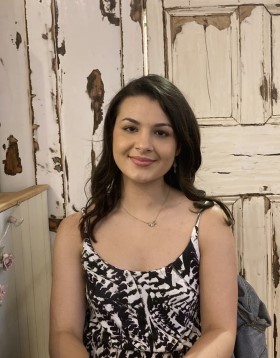
Cohort: 2024
BBSRC Theme: Understanding the rules of life
1st Rotation Project: A novel transfection strategy to target mesenchymal heart precursor cells supervised by Dr Susanne Dietrich – University of Portsmouth), Dr Roja Hadianamrei (University of Portsmouth), and Dr Matthew Rose-Zerilli(University of Southampton).
2nd Rotation Project & Final PhD project: Development of a 3D neural-glial cell culture model derived from human iPSCs and application to studying human neurodegenerative disease mechanisms with supervisors Hafizi Sassan (University of Portsmouth) and Sandrine Willaime-Morawek (University of Southampton).
Professional Internship for PhD Students (PIPS): not completed PIPS yet
Ria graduated from Keele University in 2024 with a 1st class Bsc (Hons) in Biochemistry and Human Biology. During her undergraduate degree, she undertook a 6-week summer internship for the Biochemical Society, where she investigated the mechano-response of cardiac fibroblasts to alterations in the microenvironment. She continued her research on this topic during her final year project, concluding that an increasing pH has a significant effect on markers for cardiac fibrosis.
Ria is interested in molecular biology and physiology. Her PhD project aims to design and deliver GFP-expressing and experimental mRNA constructs in lipidoid nanoparticles to cardiac precursor cells, then assess their uptake, cell response and effects on heart development. This approach could advance mRNA delivery to mesenchyme cells, with potential implications for treating human heart disease.
Outside of research, Ria enjoys rock climbing, swimming, kickboxing, playing piano and reading.
Ian Hunter
Cohort: 2022
BBSRC Theme: Understanding the rules of life
1st Rotation Project: Exploiting rare genetic disease genomes to identify novel, key developmental control genes, supervised by Prof Matt Guille (University of Portsmouth), and Prof Sarah Ennis (University of Southampton).
2nd Rotation Project & Final PhD Project: Targeting potassium channels in oligodendrocytes to maintain myelin and a healthy brain across the lifespan, supervised by Prof Arthur Butt (University of Portsmouth), Dr Anthony Lewis (University of Portsmouth), and Dr Emma Veale (University of Kent).
Professional Internship for PhD Students (PIPS): GliaGenesis
Tom Roberts-McEwen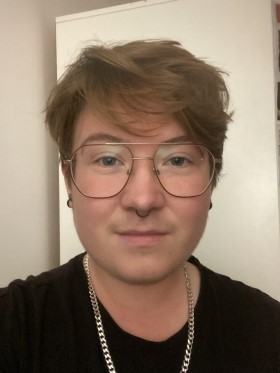
Cohort: 2023
BBSRC Theme: Bioscience for Sustainable Agriculture and Food
1st Rotation Project: Can fruit production and viticulture be enhanced by ecosystem services from wild mammals? supervised by Dr Fiona Matthews (University of Sussex) and Dr Francis Wamonje (NIAB).
2nd Rotation Project & Final PhD Project: Using group living spiders for biological pest control, supervised by Lena Grinsted (University of Portsmouth), Alan Stewart (University of Sussex), Yann Bourgeous (University of Portsmouth), Matt Guille (University of Portsmouth).
Professional Internship for PhD Students (PIPS): not completed PIPS yet
Tom graduated from Royal Holloway, University of London in 2020 with a Bachelor’s degree in Biology with honours. His third-year project focused on optimising contemporary use of nematodes as biological control agents of agricultural pests, and his dissertation aimed to unravel the intricacies of disease transmission within social insect colonies. The combination of these projects led to his interest in studying the use of group-living invertebrates for agricultural enhancement.
Tom graduated from the University of Portsmouth in 2022 with a Master of Research degree in Biology, awarded with Distinction. Their research, revolving around applied entomology and sustainable agriculture, aimed to test the efficacy of the group-living tropical tent-web spider as a biological control agent of pest arthropods. This work was later published in the journal Insects.
After his Master of Research degree, Tom continued to work with the University of Portsmouth as a research associate based in southern Spain. Here, he monitored wild tropical tent web spider colonies in order to understand resource inheritance among conspecifics and web associates. Tom later undertook a temporary role with the University of Toronto, where he assisted with the collection of false widow spiders for a population genetics study.
Both of Tom’s SoCoBio rotation projects involve understanding how the removal of agricultural pests by natural predators contributes to the protection of crops. They hope that this work will contribute to enhanced food security, particularly in lower- and middle-income countries, where range shifts of agricultural pests cause disproportionate socioeconomic deficit. Alongside their PhD, Tom works part-time as a Research Officer, facilitating conversation between universities and industry by sharing novel biotechnological advancements to encourage collaboration.
Tom is also a proud member of the LGBTQ+ community, and hopes to use his platform in STEM to empower young queer people to pursue a career in science. When he’s not caught up in the webs of spiders, he enjoys attending live music events, hiking, and socialising.
Sandra Usidamen (Industry co-funded Studentship)
Year of study: Year 1
BBSRC Theme: Understanding the rules of life
Project Title and supervisors: Investigation into the factors affecting biofilm formation on natural and synthetic dental materials supervised by Dr Marta Roldo, ~Dr Mahdi Mutahar, and Dr Roxane Bonithon (University of Portsmouth), and Rob Howlin, Andy Hunt, and Olivia Pinel (Haleon, Industry partner).
Professional Internship for PhD Students (PIPS): not completed PIPS yet
Sandra completed her BSc (First Class Honours) and MSc (Distinction) in Pathogenic Microbiology at the University of Ibadan, Ibadan, Nigeria. During her masters training, she developed a passion for antimicrobial resistance and it control. Her thesis was on antibiotic susceptibility and molecular characterisation of uropathogens gotten from urine samples of patients suffering from urinary tract infections. Following this research, she was motivated to undertake a PhD because it was a key step in her career path of becoming an expert in drug resistance control.
Currently, Sandra is researching the factors affecting biofilm formation, as well as, the composition of the salivary pellicle with the aim of developing improved denture care products that not only remove formed biofilm but also prevent its formation on dental materials.
During her free time, she enjoys planning events, listening to classical music and reading books.
University of Southampton
Dan Aspiazu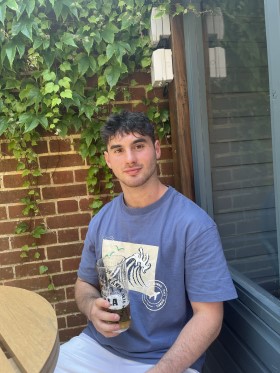
Cohort: 2023
BBSRC Theme: Understanding the Rules of Life
1st Rotation Project & Final PhD project: Chemical Tools to Interrogate Protein-Misfolding Diseases, supervised by Dr Sam Thompson (University of Southampton) and Dr Wei-Feng Xue (University of Kent).
2nd Rotation Project: Amyloid, what role does structural polymorphism play in neurotoxicty, supervised by Phil Williamson (University of Southampton), Wei-Feng Xue (University of Kent), and Jessica Teeling (University of Southampton) .
Professional Internship for PhD Students (PIPS): not completed PIPS yet
Dan studied Chemistry at the University of Oxford, St Catherine’s College for undergraduate and integrated Masters, graduating in 2023.
Dan’s interest lies in medicinal chemistry, involving the discovery and synthesis of small-molecule drugs to treat diseases caused by protein-protein interactions. This interest is reflected by his choice of Master’s project and SoCoBio PhD rotation projects, and he has tackled this problem from different angles and fields of science. For his Master’s, Dan investigated Deubiquitinase-Targeting Chimeras (DUBTACs) as a means of treating diseases caused by excessive protein degradation mediated by the Ubiquitin-Proteosome system, using computational screening techniques, protein expression and purification, solid-phase peptide synthesis, small-molecule synthesis and assays.
For his first SoCoBio rotation, Dan synthesized a series of peptide mimetic-lipid conjugates, to investigate their effect on Amyloid formation for potential treatment of Parkinson’s disease and/or type II diabetes. In his second rotation, Dan is expressing the protein alpha-synuclein, and investigating how its different amyloid polymorphs affect neurotoxicity in the development of Parkinson’s disease using structural biological techniques involving solid state protein NMR.
Outside of the lab, Dan enjoys cooking, painting, going to the gym, martial arts, football and pub trips with his friends.
Rachel Buchanan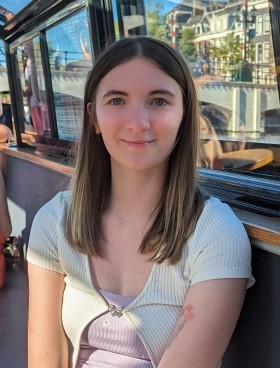
Cohort: 2023
BBSRC Theme: Bioscience for Sustainable Agriculture and Food
1st Rotation Project : Towards sustainable agriculture: Using genomics to understand Cryptosporidium infection in cattle breeds, supervised by Dr Marta Farré Belmonte, (University of Kent) , Dr Mark Chapman (University of Southampton) and Dr Anastasios Tsaousis (University of Kent).
2nd Rotation Project: Implications of mobile genetic elements on biofilm formation in Pseudomonas syringae and its biological control, supervised by Dr Tomislav Cernava (University of Southampton), Dr Xiangming Xu (NIAB), and Dr Franklin Nobrega (University of Southampton).
Final PhD project: Phage mitigation of Klebsiella infection: a new approach for AMR, supervised by Dr Franklin Nobrega – (University of Southampton), Prof Vincent O’Connor (University of Southampton), and Dr Matthew Wand – UKHSA (CASE partner)
Professional Internship for PhD Students (PIPS): not completed PIPS yet
Rachel completed her integrated master’s at the University of Southampton in 2023. During this time she completed two microbiology-based lab projects which involved sequencing and characterising a novel bacteriophage genome, and identifying potential mechanisms allowing synergy between bacterial defence systems. She also spent several months studing at Yonsei University in South Korea, undertaking courses in Genetics, Pharmacology and Korean language. These experiences led to her developing an interest in bacterial communities and genetics, and she applied to SoCoBio as projects were available in both of these areas.
Due to coronavirus disrupting the student practicals during her degree, Rachel took up work at Southampton General Hospital, working in the Microbiology and Virology labs screening patient samples for MRSA and coronavirus. Rachel also worked in the CV&T and Oncology Outpatients department, preparing and organising testing required prior to patient appointments.
Rachel’s first rotation project involved conducting a meta-analysis to summarise the current situation of Cryptosporidium in cattle worldwide, with the hope that this will lead to further study in underrepresented regions. On her second rotation, she is investigating the role of lignin precursors and how they may affect swarming behaviours in Pseudomonas species.
In her spare time, Rachel enjoys playing Netball and Tennis and continuing with her Korean language studies.
Joshua Byrne
Cohort: 2023
BBSRC Theme: Understanding the Rules of Life
1st Rotation Project : Optical imaging of synaptic transmission: a transformative technology to probe the functional determinants of behaviour, supervised by Prof Leon Lagnado (University of Sussex), and Prof Vincent O’Connor (University of Southampton).
2nd Rotation Project & Final PhD Project: Designing Glial-derived exosomes for use in nervous system repair , supervised by Melissa Andrews (University of Southampton) and Arthur Butt (University of Portsmouth).
Professional Internship for PhD Students (PIPS): not completed PIPS yet
Dyuti Basu Choudhury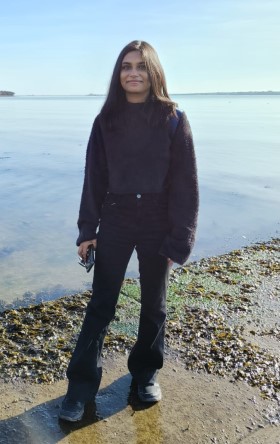
Cohort: 2022
BBSRC Theme: Bioscience for an integrated understanding of health
1st Rotation Project & Final PhD Project: Unveiling the role of ApoE in microglial development and function, supervised by Dr Diego Gomez-Nicola (University of Southampton) and Dr Sarah King (University of Sussex).
2nd Rotation Project: Understanding the role of protein conformation at the nanoscale: In-situ TERS studies of amyloidogenic Tau aggregation, supervised by Prof Sumeet Mahajan (University of Southampton), Dr Iris Nandhakumar (University of Southampton), Dr Jurgita Zekonyte (University of Portsmouth), and Prof Amrit Mudher (University of Southampton).
Professional Internship for PhD Students (PIPS): Growing Kent and Medway
Dyuti did an integrated masters in Biotechnology from St. Xavier’s College, Kolkata, India. She did an internship at the end of her third year for a month where she studied the interaction between gold nanoparticles and serum proteins. For her dissertation, she worked on the project Myeloperoxidase mediated dysregulation in Acute-on-chronic-liver failure pathogenesis. This project looked at the immunological basis of liver disease and focused on finding a background mechanism of disease progression. After the end of the dissertation period, she continued working on the project for a year.
Dyuti’s interest lies in studying about neurodegenerative diseases and the mechanisms behind the the dysregulation of a highly efficient system. She is particularly interested in studying about the contribution of immune cells in neurodegenative diseases such as Alzheimer’s .
Outside the lab Dyuti Enjoys reading books and music.
Holly Champney
Cohort: 2023
BBSRC Theme: Bioscience for sustainable agriculture and food
1st Rotation Project & Final PhD Project: Molecular and genetic mechanisms underlying the selective assembly of the plant microbiome, supervised by Dr Tomislav Cernava (University of Southampton), Dr Xiangming Xu (NIAB), and Dr Franklin Nobrega (University of Southampton).
2nd Rotation Project: Micropollutant biodegradation by marine microbes — deciphering key players and developing bioindicator technologies, supervised by Kenneth Wasmund (University of Portsmouth), John Williams (University of Portsmouth), and Marc Dumont (University of Southampton).
Professional Internship for PhD Students (PIPS): not completed PIPS yet
Holly completed her undergraduate studies at the University of Southampton and received a First Class Honours in BSc Biology. Her dissertation looked at differences between two yeast species across a geographic divide and earned a Royal Society of Biology Accreditation Top Project Award. Furthermore, during her second year, she undertook a summer placement with SoCoBio looking at the carotenoid content of different types of tomatoes. This experience inspired her to apply for a SoCoBio DTP PhD project the following year.
Holly is passionate about plant microbiology and how microbial methods can be used to improve agriculture. Her PhD project explores how certain lignin precursors alter the phyllosphere microbiome and how this can be exploited to control pathogenic Pseudomonas species.
In February 2023, Holly received an Inspirational Women of Portsmouth award in the category of women in STEM and continues to work within the Portsmouth community to promote STEM careers in underrepresented groups.
In her spare time, Holly enjoys reading, crocheting or going for walks along the coast.
Alex Clarke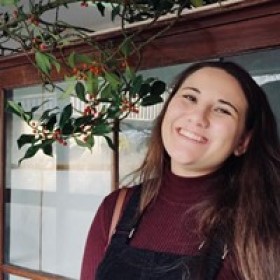
Cohort: 2022
BBSRC Theme: Bioscience for an integrated understanding of health
1st Rotation Project & Final PhD Project: Killing intracellular pathogens with antibiotic nanocapsules, supervised by Dr Nick Evans (University of Southampton), Dr Seung Lee (University of Southampton), Dr Tracey Newman (University of Southampton), and Dr Adam Whelan, Dr Jo Prior and Dr Izzy Norville (DSTL Porton Down).
2nd Rotation Project: Drug discovery and repurposing to target key bacterial respiratory complexes, supervised by Dr Mark Shepherd (University of Kent), Prof Mark Wass (University of Kent), and Dr Simon Waddell (University of Sussex).
Professional Internship for PhD Students (PIPS): Winchester Science Centre (Wonderseekers)
Alex’s interest lies in development of alternative antimicrobial treatments for antimicrobial resistant pathogens. She feels passionately that AMR is a key problem, often overlooked by many people, and would love to contribute to a solution.
Alex completed her undergraduate degree, BSc (Hons) Biomedical Science, at the University of Plymouth in 2019. In her final year, she undertook a research project attempting to discover novel bacteria-derived antimicrobials (bacteriocins) from deep sea sponges. Following this, she moved to the University of Edinburgh to undertake a Masters by Research degree in Biomedical Science, with a focus on microbiology. Whilst at Edinburgh, Alex completed two 20-week projects: one focussed on the discovery and characterisation of bacteriophage; and the other a systematic review of phage therapy for bone and joint infection. This systematic review demonstrated that bacteriophage were highly safe and efficacious against bone and joint infection and was published after the completion of her degree.
Outside of the lab, Alex loves to bake, and enjoys selling her wares to raise money for various charities.
Rio Coleman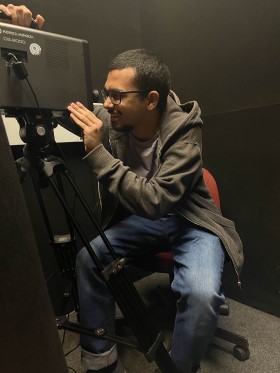
Cohort: 2024
BBSRC Theme: Understanding the Rules of Life
1st Rotation Projects & Final PhD Project: Individual Differences in Human Colour Processing with supervisors Dr Christoph Witzel (University of Southampton), Dr Jenny Bosten (University of Sussex), and Dr Nick Kelley (University of Southampton).
2nd Rotation Project: Investigating the mechanisms of gene priming by early life adversity with supervisors Emily Brookes (University of Southampton) and Jerome Swinny (University of Portsmouth).
Professional Internship for PhD Students (PIPS): not completed PIPS yet
Rio completed his BSc Psychology degree at the University of Southampton, graduating in July 2024. In his final year he completed a project investigating a method of condensing information about surface reflectance spectra from 40 values to just three using spatial cone excitation ratios. This work was presented at the European Conference on Visual Perception in 2024. He continues to pursue his interest in the field of human colour vision, though his first rotation project focuses on complementary colours in the human visual processing pathway rather than reflectance spectra in the external world.
This rotation project aims to investigate models of complementary colours arising at different stages of the human visual processing pathway, from photoreceptors to the brain, using individual differences. The stage Rio is working on aims to find methods of measuring complementary colours arising at different processing stages individually. The later phases of the project, which Rio hopes to pursue for his final thesis, will sequence photopigment genes to generate and test specific predictions about which complementary colours people should see.
In his spare time, Rio enjoys astronomy and creative writing, but has recently retired from speed running video games.
David Florin Cotriscau (Industry Co-funded Studentship)
Cohort: 2024
BBSRC Theme: Bioscience for sustainable agriculture and food
Project Title and Supervisors: Novel microbes for novel solutions: Bioprospecting for properties with uses in many sectors with supervisors Prof Vladimir Jiranek (University of Southampton) and Dr Renaud Toussaint (Lesaffre International, Industry partner).
Professional Internship for PhD Students (PIPS): not completed PIPS yet
Callum Ellis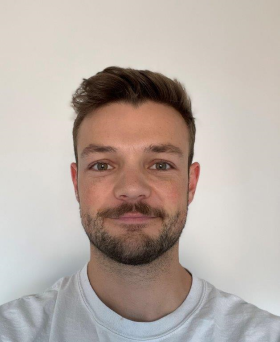
Cohort: 2022
BBSRC Theme: Understanding the rules of life
1st Rotation Project: Defining links between the mitochondrial stress response and inflammation, supervised by Dr David A Tumbarello (University of Southampton) and Dr Lisa Mullen (University of Sussex).
2nd Rotation Project & Final PhD Project: Unravelling the Molecular Mechanism of Progression in Alzheimer’s Disease: Implications for therapy, supervised by Prof Jonathan Essex (University of Southampton), Prof Louise Serpell (University of Sussex), and Prof Amrit Mudher (University of Southampton).
Professional Internship for PhD Students (PIPS): Sygnature Discovery
Callum graduated from the University of Southampton in 2016 in Biomedical Sciences, with his dissertation looking at pathology of a contagious cancer in Tasmanian Devils. He has spend the last 5 years since then working in the pharmaceutical industry in a number of roles at Lilly as part of their commercial graduate scheme, and joined the SoCoBio DTP in October 2022.
He joined the DTP to persue his passion for science with a view to taking some of his learnings from the commercial sector and applying them to his passion for science. In particular he has interest in mitochondrial dysfunction in neurodegenerative disease, as well as the computational modelling side of disease, and whether this can be used to further our understanding and save time and resources in drug development, diagnosis and treatment.
Outside of the lab Callum will likely be found outside usually some combination of cycling, climbing, surfing or sailing and is always keen for a squash opponent.
Charles Ellis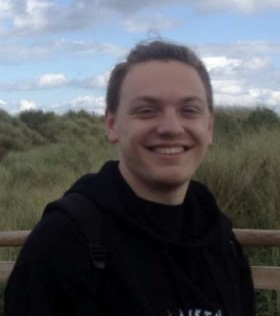
Cohort: 2022
BBSRC Theme: Understanding the rules of life
1st Rotation Project & Final PhD Project: Understanding how lysosomes become dysfunctional in neurodegeneration, supervised by Dr J. Arjuna Ratnayaka (University of Southampton), Professor Louise Serpell (University of Sussex), and Dr David Tumbarello (University of Southampton).
2nd Rotation Project: Memory molecules and where to find them – does our brain store memories in binary format? Supervised by Dr Ben Goult (University of Kent) and Prof Kevin Staras (University of Sussex).
Professional Internship for PhD Students (iPIPS): The Biomedical Imaging Unit at Southampton General
In 2022, Charlie graduated from the University of Sussex with a BSc in Neuroscience, undertaking a final year dissertation focusing on retinal synaptic neuromodulation by nitric oxide.
His interests are the cellular pathology of visual / neurodegenerative diseases (including Alzheimer’s disease, and age-related macular degeneration), synaptic function / dysfunction, memory, structural / cellular biology and eating behaviours. Additionally, he is interested in computational neuroscience and how this can be applied to predictive technologies and machine learning, for example, by using Python.
Charlie’s current project hopes to investigate lysosomal dysfunction molecularly with aims to understand a pathway that is heavily linked to neurodegeneration. He hopes to utilise this PhD to develop practical skills in various techniques / methodologies to study important biological functions.
Outside of research, Charlie enjoys hiking, spending time in nature with friends and the odd game of chess!
Oreoluwa Fakeye
Cohort: 2021
BBSRC Theme: Bioscience for an integrated understanding of health
1st Rotation Project and Final PhD Project: Diversity and regulation of GluN1-NMDA receptor subunits in health and disease, supervised by Dr Mariana Vargas-Caballero (University of Southampton), K. Deinhardt (University of Southampton) and Andrew Penn (University of Sussex).
2nd Rotation Project: Investigating the role of molecular motors in neuronal connectivity: Implications for autism spectrum disorders and schizophrenia, supervised by Dr Katrin Deinhardt (University of Southampton), Prof Majid Hafezparast (University of Sussex) and Dr Mariana Vargas-Caballero (University of Southampton).
Professional Internship for PhD Students (PIPS): Metrion Biosciences
Johanna Fish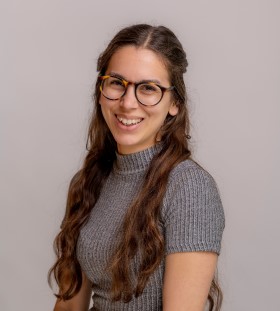
DTP Wellbeing Champion
Cohort: 2020
BBSRC Theme: Understanding the Rules of Life
1st Rotation Project and Final PhD Project: Dissecting Signalling Pathways with PROTAC Chemical Probes, supervised by Dr Matthias Baud (School of Chemistry, University of Southampton), Prof David Harrowven (School of Chemistry, University of Southampton), and Prof Georgios Giamas (USussex).
2nd Rotation Project: Biosynthetic Potential of the Radical SAM Enzyme Lipoyl Synthase, supervised by Prof Peter Roach (University of Southampton) and Prof John Spencer (University of Sussex).
Professional Internship for PhD Students (PIPS): Nanomerics Ltd
Johanna returned to the University of Southampton upon completion of her master’s degree in Chemistry in 2020 to pursue her PhD at the interface of Chemistry and Biology. Her undergraduate projects were medicinal chemistry focussed, and so developed a strong background in chemistry and its application in a pharmaceutical setting. These included conformational bias introduction by fluorination, and a natural product synthesis from a different, highly abundant natural product.
For her master’s dissertation, she undertook synthesis of novel DNA nanopores covalently bonded with monoclonal antibodies and then was able to measure the biological activity of the compounds using various biological techniques.
Johanna’s primary research interests are in utilising interdisciplinary research to improve patient outcomes, motivating her choice of PhD project. PROTACs are a relatively new, highly promising technology that could reduce side effects and issues experienced by patients undergoing treatments such as chemotherapy. However, to become sufficiently viable, they require physicochemical refinements, which is where her project begins.
She also holds a strong interest in humanitarian work, to improve the lives of vulnerable people through policy, and ensuring medicine and safety standards are accessible and maintained, regardless of geographical and economic status. She hopes to continue her line of work within the medicinal chemistry industry, and to incorporate this into it.
Outside of the lab, Johanna dedicates time working on projects to improve mental health, improve research culture, and to increase the visibility of minority groups within STEM, including ethnic minorities and neurodivergent people. She is a Welfare Officer for the Biological Sciences Postgraduate Society, is part of the School of Biological Sciences EDI committee and at university level, and has been a wellbeing champion for SoCoBio since 2020. She passionately believes that the best science is completed when everyone is enabled, heard and equitably provided for, and hopes to keep this spirit on as she progresses through her career.
Amanda Gilbert
Cohort: 2021
BBSRC Theme: Bioscience for an integrated understanding of health
1st Rotation Project and Final PhD Project: Liver organoid systems to identify metabolic signalling functions underlying liver regeneration and enhance drug discovery, supervised by Dr Nicole Prior (University of Southampton) and Professor Jeffrey Hill (University of Sussex).
2nd Rotation Project: Elucidating how epithelial cell polarity maintenance safeguards genome stability during cell division, supervised by Dr Salah Elias (University of Southampton) and Dr Kok-Lung Chan (University of Sussex).
Professional Internship for PhD Students (PIPS): Adelaide Centre for Epigenetics, University of Adelaide (one month IPIPS) and British Liver Trust (two month PIPS)
Adam Green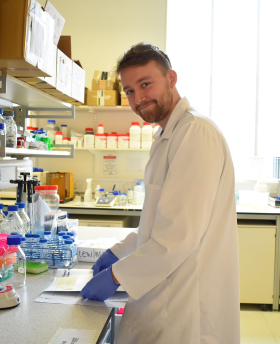
Cohort: 2023
BBSRC Theme: Bioscience for renewable resources and clean growth
1st Rotation Project & Final PhD Project : How to build a chloroplast: Unravelling chloroplast communication with the nucleus, supervised by Prof Matthew Terry (University of Southampton) and Prof Martin Warren (University of Kent).
2nd Rotation Project: Decoding plant O-glycosylation signalling networks, Supervised by Richard Meek (University of Southampton), Matthew Terry (University of Southampton, and Andrew Pickford (University of Portsmouth).
Professional Internship for PhD Students (PIPS): Promega UK
Adam completed his undergraduate degree in BSc biology at the University of Sheffield graduating in 2020. Following this he attended the University of Warwick to complete an MSc in Sustainable Crop Production with a 5 month research project in the field of plant pathology graduating in 2021. Shortly after this Adam started a role as a research assistant at NIAB based in East Malling, Kent. As part of the crop physiology and production team he worked on experiments with a range of fruits including strawberries, raspberries and blackberries and investigated their response to different water and nutrient treatments. After almost 2 years in this role he decided to pursue a PhD in molecular plant biology to further his own knowledge and development.
The main purpose of Adam’s project at the University of Southampton is to investigate the role of the GUN1 protein in retrograde signaling (chloroplast to nucleus communication). Adam works with the model plant Arabidopsis Thaliana and will use a variety of techniques including genetic, molecular biology and proteomics.
Adam hopes to contribute to advancing the knowledge of this area and produce novel ideas. Alongside developing himself as a proficient scientist and communicator.
Linda Guantai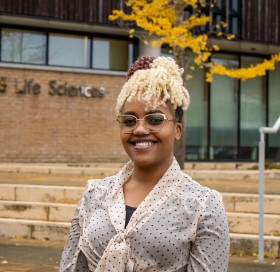
Cohort: 2023
BBSRC Theme: Bioscience for an integrated understanding of health
1st Rotation Project & Final PhD Project : Drug-microbiome-host interactions in Parkinson’s disease, supervised by Dr Fatima Pereira (University of Southampton), and Prof Jerome Swimmy (University of Portsmouth), and Franklin Nobrega (University of Southampton).
2nd Rotation Project: Gut feelings: Inflammation in the gut and the impact of dopamine metabolism on brain function, supervised by Jessica Teeling (University of Southampton), Murphy Wan (University of Portsmouth), and Jerome Swinny (University of Portsmouth)
Professional Internship for PhD Students (PIPS): not completed PIPS yet
Linda has an academic background in biological sciences, tropical and infectious diseases (BSc Microbiology/Biotechnology, MSc Tropical, and Infectious diseases) from the University of Nairobi, Kenya. She has research experience in the areas of bacteriology, bacteriophage therapy, virology, molecular biology, disease diagnostics (including TB), data analysis, mycology, and other microbiology processes. She worked as a research associate in the project using bacteriophages as a one health approach to control Salmonella in poultry at (International Livestock Research Institute) ILRI funded by IDRC since 2019 to 2023 where she managed the Phage’s laboratory. For her master’s dissertation, she investigated the effectiveness of a combination of bacteriophages and antibiotics in the control of multidrug resistant Salmonella Enteritidis isolated from Poultry farms in Kenya.
Previously, she also worked at Kenya Medical Research Institute (KEMRI) on various Antimicrobial Resistance profiling studies and on a project isolating and characterizing Campylobacter-specific bacteriophages funded by Phages for global health, Government of Kenya, and Wellcome Trust. She volunteered in mycology lab at KEMRI determining the aflatoxin levels in different maize flour sold commercially in Kenya after completing her undergraduate degree and interned in the same institute for a year working on several projects focussed on AMR.
Linda is currently studying drug-host-microbiome interactions in Parkinson’s disease for her first rotation project. The project aims to further explore the implications of Parkinson’s disease drugs especially entacapone on composition and activity of human gut microbiota, the repercussions this may have on the host and how the effects vary among different individuals.
Linda is interested in undertaking research to contribute to the development of tailored/ alternative antimicrobials to control antimicrobial resistance and improve human, environment and animal health using the One health approach.
Theo Hornsey (Industry Co-funded Studentship)
Cohort: 2022
BBSRC Theme: Understanding the rules of life
Project Title and supervisors: Correlative imaging for fracture prediction in the military, supervised by Dr Claire Clarkin, – University of Southampton), Prof Julie Greeves OBE PhD , (Professor of Applied Physiology, Army Health and Performance Research (AHPR)),and Dr Jemma Kerns (University of Lancaster).
Theo graduated from the University of Southampton with a 1:1 MSci in Natural Sciences in 2022.
Professional Internship for PhD Students (PIPS): Replicate 3D
Matthew Irwin (Industry co-funded Studentship)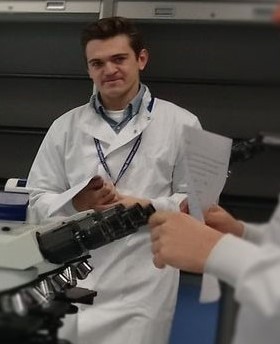
Cohort: 2021
BBSRC Theme: Bioscience for renewable resources and clean growth
Project Title and supervisors: Microbial biotechnology approaches to optimize chemical oxygen demand and enhance nitrogen and phosphorus removal in wastewater treatment, supervised by Dr Yongqiang Liu (University of Southampton), Prof Jeremy Webb (University of Southampton) and Juhani Kostiainen (Plantworks System Limited).
Professional Internship for PhD Students (PIPS): Industry partner Plant Work Systems (PWS)
Matt originally completed his undergraduate degree in Environmental sciences (BSc), during the course of which he developed an interest microbiology and the use of specific microbes for the sustainable treatment of water and energy generation. Matt has also completed summer internships at the Environment agency and Hydrolize ltd (a natural swimming pool company). The experience he gained during these internships led to his undergraduate project “The use of microbial biofilters for the treatment of river drinking water”, with the aim of investigating the feasibility of a novel water treatment system with limited power and no chemical requirements.
Following this, he completed an MRes in Advanced Biological Sciences at the University of Southampton under Professor Jeremy Webb. The main focus of his research project was investigating “The effect of water hardness on the structure and composition of biofilms in Aerobic granular sludge (AGS) reactors”.
This work led to the undertaking of this PhD project which aims to further explore the role of microbial biofilms within wastewater treatment systems and how these could be influenced to improve sustainable water treatment. Particularly Matt is interested in the potential of using newly developed community editing technologies to tailor the composition of water treatment biofilms to enhance the removal of Phosophorus and Nitrogen.
Liliana Jeziorska (Industry Co-funded Studentship)
Cohort: 2023
BBSRC Theme: Bioscience for sustainable agriculture and food
Project Title and supervisors: Nanobody technology: feeding target authentication and mitigation strategies in crop protection, supervised by Prof Vincent O’Connor (University of Southampton), Dr James Dillon (University of Southampton) and Dr Marcus Guest (Syngenta, Industry partner).
Professional Internship for PhD Students (PIPS): not completed PIPS yet
Abhishek Johan Issac
Cohort: 2022
BBSRC Theme: Understanding the rules of life
1st Rotation Project: What are the structural elements of amyloids that determine their toxicity? supervised by Dr Philip Williamson (University of Southampton), Dr Wei-Feng Xue (University of Kent), and Prof Jessica Teeling (University of Southampton).
2nd Rotation Project & Final PhD Project: Deciphering the bacterial signalling: Aptablotting of the HptRS two-component system in Staphylococcus aureus, supervised by Dr Seung Lee (University of Southampton) and Dr Christopher Mulligan (University of Kent).
Professional Internship for PhD Students (PIPS): not completed PIPS yet
Emily Jones
Cohort: 2023
BBSRC Theme: Bioscience for renewable resources and clean growth
1st Rotation Project & Final PhD Project: Synthetic biology approaches to construct metal analogues of vitamin B12 to act as anti-microbial and imaging agents for health applications, supervised by Dr Andrew Lawrence (University of Southampton) and Prof Martin Warren (University of Kent).
2nd Rotation Project: Chemical Tools to Interrogate Protein-Misfolding Diseases, supervised by Sam Thompson (University of Southampton) and Wei-Feng Xue (University of Kent).
Professional Internship for PhD Students (PIPS): not completed PIPS yet
Anastasia Kolesnikova
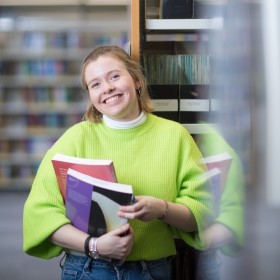
Cohort: 2022
BBSRC Theme: Bioscience for sustainable agriculture and food and Understanding the Rules of Life
1st Rotation Project & Final PhD Project: Phenotypic constraints on crop improvement and the domestication of novel crops, supervised by Dr Mark Chapman (University of Southampton), Dr Yann Bourgeois (University of Portsmouth) and Dr Rocio Perez-Barrales (University of Portsmouth).
2nd Rotation Project: Safeguarding UK hop production from Verticillium nonalfalfae: Using genomics to develop race-specific diagnostics and generate Verticillium resistant hop through Host Induced Gene Silencing, supervised by Dr Helen Cockerton (University of Kent), Dr Alessia Buscaino (University of Kent) and Prof Xiangming X (NIAB).
Professional Internship for PhD Students (iPIPS): New Forest National Park Authority & Renovos Biologics Limited
Anastasia graduated from Imperial College London with a degree in Biochemistry. During her final year, she specialised in structural biology, bioinformatics, plant immunity and science communication. She decided to follow up on her interest through a masters, completing an MRes in Big Data Biology at the University of Southampton. Her MRes thesis was focused on understanding drought response in an underutilized crop, lablab.
Overall, her research interests lie in food security, plant biology and computational methods. In her spare time, Anastasia partakes in public engagement, science communication, water polo, archery and Irish dance.
Dylan Lamptey
Cohort: 2024
BBSRC Theme: Bioscience for an integrated understanding of health
1st Rotation Project & Final PhD Project: Neurochemical Insights into Ageing via 3D Neural Culture with supervisors Dr Sandrine Willaime-Morawek (University of Southampton), Dr Andrew Penn (University of Sussex), Prof Sumeet Mahajan (University of Southampton), and Prof Amrit Mudher (University of Southampton).
2nd Rotation Project: Understanding the role of protein conformation at the nanoscale: In-situ TERS studies of amyloidogenic Tau aggregation with supervisors Amrit Mudher (University of Southampton), Iris Nandhakumar (University of Southampton), Sumeet Mahajan (University of Southampton), Jurgita Zekonyte (University of Portsmouth).
Professional Internship for PhD Students (PIPS): not completed PIPS yet
Reece Lane-Cartwright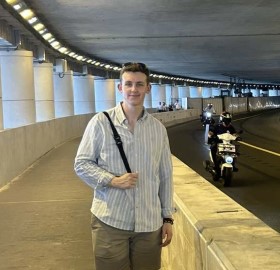
Cohort: 2024
BBSRC Theme: Bioscience for sustainable agriculture and food
1st Rotation Project & Final PhD Project: Antimicrobial resistance in captive animals: understanding the potential for environmental persistence, and transfer to other species with supervisors Dr Sandra Wilks (University of Southampton), Dr Judith Lock (University of Southampton), and Dr Philip Riordan (Marwell Wildlife, CASE Partner).
2nd Rotation Project: Manipulating root-microbe interactions to improve plant responses to climate change stressors with supervisors William King (University of Southampton), Binuraj Menon (University of Portsmouth), and Eleftheria Stavridou (NIAB).
Professional Internship for PhD Students (PIPS): not completed PIPS yet
Reece obtained a 1st class BSc in Biomedical science at the University of Essex in 2023, completing his final year project in plasmid expression of the Psuedemonas aeruginosa RND efflux pump gene tolC. His studies were integrated in a year in industry at NHS NNUH where he passed his Band 5 Biomedical scientist registration portfolio. Reece then went on to undertake an MRes with Dr Sandra Wilks in antibiotic applications on biofilms at the University of Southampton graduating in 2024.
His project partnered with Marwell Zoo looks at shifts in the composition of the microbiome and the potential transference of antimicrobial resistant bacteria and genes between animals and its environment under a One Health paradigm. His aims from the project are to tailor the animal microbiome in order to limit gut dysbiosis and increase animal health outcomes, through longitudinal assessment of microbiota shifts.
Samuel Liu (CASE Studentship)
Cohort: 2022
BBSRC Theme: Bioscience for an integrated understanding of health
1st Rotation Project & Final PhD Project: Immune signatures for Healthy Aging, (CASE Project) supervisors: Prof Jessica Teeling (University of Southampton) and Prof Paul Skipp TopMD Precision Medicine Ltd), and Dr Jay Amin (University of Southampton).
2nd Rotation Project: Multimodal imaging of selective recollection in youth and ageing, supervised by Dr Alexa Morcom (University of Sussex) and Dr Zara Bergström (University of Kent).
Professional Internship for PhD Students (PIPS): TopMD Precision Medicine (CASE Partner)
Michelle Lin (Industry co-funded Studentship)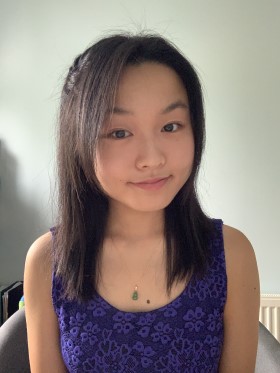
Cohort: 2024
BBSRC Theme: Bioscience for an integrated understanding of health
Project Title and supervisors: Engineering filamentous bacteriophage-host cell interactions for improved infection outcomes supervised by Prof Jeremy Webb,Dr Franklin Nobrega, Dr Joe Parker, and Alasdair Munro (University of Southampton) and Prof Saul Faust (National Institute for Health and Care Research (NIHR), Industry partner).
Professional Internship for PhD Students (PIPS): not completed PIPS yet
Michelle studied her undergraduate degree at the University of Southampton where she discovered her interest for research in microbiology.
Filamentous phages enable their host bacteria, Pseudomonas aeruginosa, to be successful in causing chronic infections. The mechanisms in which the filamentous phages do so is not well understood. Understanding these mechanisms is the main objective of this project and will assist with improved infection outcomes in Cystic fibrosis.
In this PhD, she hopes to contribute to the multitude of efforts in improving infection outcomes. She also hopes to become a knowledgeable and skilful researcher in microbiology.
Emily Lucas
Cohort: 2021
BBSRC Theme: Understanding the rules of life
1st Rotation Project : Elucidating how epithelial cell polarity maintenance safeguards genome stability during cell division, supervised by Dr Salah Elias (University of Southampton) and Dr Kok-Lung Chan (University of Sussex)
2nd Rotation Project: Defining mechanisms that link mitochondrial quality control to the innate immune response, supervised by Dr David A Tumbarello (University of Southampton) and Dr Lisa Mullen (University of Sussex).
Final PhD Project: Investigating the role of molecular motors in neuronal connectivity: Implications for autism spectrum disorders and schizophrenia, supervised by Dr Katrin Deinhardt (University of Southampton), Prof Majid Hafezparast (University of Sussex), and Dr Mariana Vargas-Caballero (University of Southampton).
Professional Internship for PhD Students (PIPS): CASK Research UK
Shubhangi Mahajan
Management Board Student Representative
Cohort: 2022
BBSRC Theme: Bioscience for sustainable agriculture and food
1st Rotation Project & Final PhD Project: Viruses in the rhizosphere: the role of phages in the soil and plant root environment, supervised by Dr Marc Dumont (University of Southampton), Dr Franklin Nobrega (University of Southampton), and Prof Xiangming Xu (NIAB).
2nd Rotation Project: Environmental and genetic determinants of Brassica crop damage by the agricultural pest Diamondback moth (CASE Project), supervised by Dr Herman Wijnen (University of Southampton), Dr Fryni Drizou (Royal Horticultural Society (RHS)), and Dr Haruko Okamoto (University of Sussex).
Professional Internship for PhD Students (PIPS): Royal Horticultural Society (RHS)
Macy Martin
Cohort: 2023
BBSRC Theme: Understanding the rules of life
1st Rotation Project: Phage mitigation of Klebsiella infection: a new approach for AMR, supervised by Dr Franklin Nobrega (University of Southampton), Professor Vincent O’Connor (University of Southampton), and Dr Matthew Wand, (UKHSA, CASE partner).
2nd Rotation Project & Final PhD Project: SMART: SMart ARchiTecture – use of antimicrobial copper alloys in public infection prevention strategies, supervised by Sandra Wilks (University of Southampton), William Keevil (University of Southampton), Mike McGrath (Necon Technologies).
Professional Internship for PhD Students (PIPS): not completed PIPS yet
Macy completed her integrated master’s studies at the University of Southampton, graduating in 2022 with first class honours in MSci Biomedical Sciences. Macy has a longstanding interest in infectious diseases and medical microbiology, and during her undergraduate studies she acted as Vice President of HIV Education (HIVE) Southampton. Her third year dissertation focused on the effects of suppressive antibiotic combinations on antibiotic resistance rates in E. coli. Her Master’s thesis explored the efficiency of a novel technique in decontamination of surgical instruments, and it was this that first sparked her interest in alternative treatments for antimicrobial resistant bacterial infections.
Macy’s research interests centre on the global burden of antimicrobial resistance (AMR) and alternative antimicrobial therapies to treat bacterial pathogens with complex resistance profiles. Her interests lie at the interface of academic and clinical research. Macy’s first rotation project encompassed all of these interests, as she joined the Nobrega Microbial Interactions Lab to investigate bacteriophage mitigation of carbapenem-resistant Klebsiella infections.
Yomna Moqidem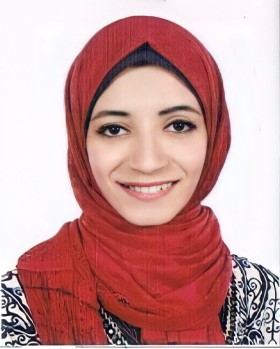
DTP Wellbeing Champion
Cohort: 2023
BBSRC Theme: Understanding the rules of life, Bioscience for an integrated understanding of health
1st Rotation Project: Design of SSAs for novel small molecule human therapeutics, supervised by Prof Michelle Garrett (University of Kent), Dr Jennifer Hiscock (University of Kent), Dr Tim Fenton (University of Southampton), and Mr Sashi Kommu (Clinician and Surgeon, Department of Urology, East Kent Hospitals University NHS Foundation Trust).
2nd Rotation Project & Final PhD Project: Defining the role of Factor Inhibiting HIF (FIH) as a key regulator of extracellular matrix homeostasis, supervised by Dr Yihua Wang (University of Southampton), Dr Andrea Bucchi (University of Portsmouth), and Dr Mark Jones (University of Southampton).
Professional Internship for PhD Students (PIPS): not completed PIPS yet
Sophie Powell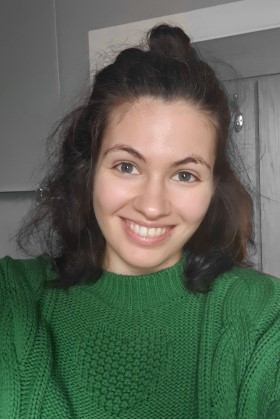
Cohort: 2021
BBSRC Theme: Bioscience for an integrated understanding of health
1st Rotation Project and Final PhD Project: Investigating the role of PURA in neurodevelopment using CRISPR/Cas9 saturation gene editing, supervised by Prof Diana Baralle (University of Southampton), Prof Matt Guille (University of Portsmouth) and Dr Gabrielle Wheway (University of Southampton).
2nd Rotation Project: Defining the role of the talin-kindlin-integrin axis in the regulation of neurite outgrowth, supervised by Melissa Andrews (University of Southampton) and Ben Goult (University of Kent).
Professional Internship for PhD Students (PIPS): Promega UK Ltd
Sophie graduated from the University of Bath with a BSc (Hons) in Biochemistry with Professional Placement (2015-2019). She undertook her placement year at Cardiff University under the supervision of Dr Emyr Lloyd-Evans, where she gained an interest in neurological disorders through the characterisation of a mouse glial cell model of Niemann-Pick C disease, a rare childhood neurodegenerative disease. Sophie was keen to continue the momentum of her placement through her final year project, during which she expanded on her cell culture knowledge to successfully maintain and manipulate mouse embryonic stem cells. This involved undertaking a stable transfection to enable the inducible RNAi knockdown of ANG, a key protein implicated in Amyotrophic Lateral Sclerosis, creating a cell line that could be differentiated to study the effect of reduced ANG expression in motor neurons and multiple other cell types of interest.
Sophie subsequently completed her Master of Research (MRes) in Stem Cell Neurobiology at Cardiff University (2019-2021) under the supervision of Prof. Lesley Jones, which involved the generation and characterisation of FAN1-variant Huntington’s disease patient iPSCs and iPS-neurons. Through this project Sophie undertook HDR (homology-directed repair) CRISPR gene editing in order to produce an edited patient iPSC line with a single nucleotide polymorphism in the DNA-binding domain of the DNA repair enzyme FAN1. She then used these FAN1-variant patient cell lines to test the hypothesis that deficient versions of FAN1 could be hastening the onset of disease symptoms by permitting expansion of the Huntingtin CAG repeat over time in specific cell groups of the Huntington’s disease brain. Sophie was pleased to be awarded the 2019 Cohort MRes Prize for Best Research Project for this work, and for the opportunity to co-author her first papers for the Journal of Huntington’s Disease (doi: 10.3233/JHD-200445) and Nature Neuroscience (doi: 10.1038/s41593-022-01033-5).
Sophie’s final PhD project, ‘Investigating the effect of PURA missense variants on neurodevelopment in X. tropicalis frogs using CRISPR base editing’ felt like a natural continuation of her research – building on her neurological disease and CRISPR knowledge to investigate PURA, a gene involved in neuronal proliferation, dendrite maturation and localised mRNA translation in neurons during neuronal development. De novo mutations in PURA are responsible for a severe neurodevelopmental condition, PURA syndrome, and PURA may play a role in both ALS and expanded repeat disorders. Pathogenic variants span the length of the Purα protein, but no strong correlation has yet been found between the localisation of specific variants and the presence or penetrance of clinical features in PURA syndrome patients, hindering accurate predictions of patient prognosis and the scope of therapy design. The aim of this project is to expand the use of base editing technologies in the frog to enable the precise recreation of PURA missense variants in Xenopus tropicalis purα, and to use the phenotypic characterisation of the resulting tadpoles to better understand genotype-phenotype relationships in PURA syndrome.
Through this project, Sophie is eager to expand upon her pre-existing experience by working with in vivo models to undertake exciting research with real-world benefits to patients with neurological disease.
Ewan Reed
Cohort: 2024
BBSRC Theme: Understanding the rules of life
1st Rotation Project & Final PhD Project: Investigating a novel relationship between proteins regulating cell division and DNA repair with supervisors Dr Marcin Przewloka (University of Southampton), Dr Jerome Korzelius (University of Kent), and Dr Salah Elias (University of Southampton).
2nd Rotation Project: Unravelling the mechanochemical biology of cell division in breast epithelial morphogenesis with supervisors Salah Elias (University of Southampton) and Ruth Murrell-Lagnado (University of Sussex).
Professional Internship for PhD Students (PIPS): not completed PIPS yet
Molly Slade 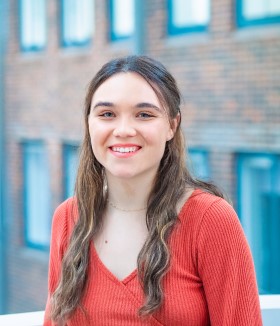
Cohort: 2024
BBSRC Theme: Understanding the rules of life
1st Rotation Project & Final PhD Project: Defining mechanisms linking the mitochondrial stress response to inflammation Dr David A Tumbarello (University of Southampton) and Dr Lisa Mullen (University of Sussex)
2nd Rotation Project: Identifying how glycan signalling regulates brain development and physiology with supervisors Richard Meek (University of Southampton), Max Crispin (University of Southampton), and Andy Pickford (University of Portsmouth).
Professional Internship for PhD Students (PIPS): not completed PIPS yet
Molly completed her MSc in Neuroscience at the University of Southampton and during her undergraduate degree she had the opportunity to research a range of bioscience fields. Her Bachelors project focusing on the utilization of pre-approved Serotonin-based drugs as an anthelmintic for drug-resistant parasitic disease, while her Master’s dissertation examined the plasticity of per, by genetically manipulating Drosophila clock proteins. She also undertook a competitive internship, investigating glycosyltion effects of R5P on S100A9 in diabetes-linked Alzheimer’s amyloid deposits. This broad range of research in neuropharmacology, genetics and biochemistry gave Molly a fantastic understanding of interdisiplinary science, helping her refine her research focus. Her favourite taught modules included neurodegenerative disease and neuroanatomy. Molly also gained practical experience working in the NHS biochemical labs and pharmacies during the COVID-19 pandemic.
With a passion for discovering the undiscovered, with a strong interest in traumatic brain injuries, MS and neurodegeneration, Molly was given the flexibility to tailor her PhD project around her interests and current literature. Her current PhD project with SoCoBio DTP investigates the effects of TBI on mitochondrial quality control, focusing on oxidative and glutamatergic stress on mitochondrial derived vesicles. She aims to connect these findings to neurodegenerative diseases like Parkinson’s and ALS, with results opening up avenues for preventative treatment options post-TBI.
In her spare time, Molly enjoys swimming, cycling and running, with a background in competitive triathlon and professionally coaches swimmers and triathletes of all ages, and advocates for rare neurologival diseases. In 2023, she founded a charity event, SOTON LEJOG, leading cyclists from Lands End to John O’Groats, cycling over 1600km, and raising almost £10k for FND, as well as promoting the awareness of FND in the local and national media and lobbying for its inclusion in medical curricula.
Molly aspires to work in academia, combining her love of teaching and science. She is excited about SoCoBio’s diverse training modules that will enhance her scientific expertise.
Iolanta Spanner (Industry Co-funded Studentship)
Cohort: 2022
BBSRC Theme: Bioscience for sustainable agriculture and food
1st Rotation Project & Final PhD Project: Understanding the antimicrobial properties of natural plant extracts and herbal infusions, supervised by Dr Sandra A Wilks (University of Southampton), Prof Bill Keevil (University of Southampton), and Dr Vivien Rolfe (Pukka Herbs Ltd).
2nd Rotation Project: Viruses in the rhizosphere: the role of phages in the soil and plant root environment, supervised by Dr Marc Dumont (University of Southampton), Dr Franklin Nobrega (University of Southampton), and Prof Xiangming Xu (NIAB).
Professional Internship for PhD Students (PIPS): Curiosity Research Ltd
Palita Udomjarumanee
Cohort: 2024
BBSRC Theme: Understanding the rules of life
1st Rotation Project & Final PhD project: Reprogamming muscle stem cell ageing by targeting druggable nuclear phosphoinositide pathways supervised by Prof Nullin Divecha (University of Southampton) and Prof Anastasia Callaghan (University of Portsmouth).
2nd Rotation Project: The Discovery of Vaccine Epitopes Against Microbial and Fungal Pathogens with supervisors Paul Skipp (University of Southampton), Rebecca Hall (University of Kent), Benjamin Nicholas(University of Southampton), and Sandra Wilks (University of Southampton).
Professional Internship for PhD Students (PIPS): not completed PIPS yet
Juri Westendorf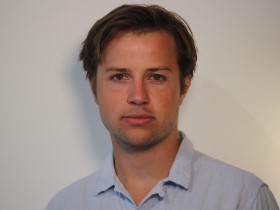
Cohort: 2024
BBSRC Theme: Understanding the rules of life
1st Rotation Project & Final PhD Project: Data-driven identification of translational control with supervisors Dr Owen Rackham (University of Southampton) and Prof Mark Smales (University of Kent).
2nd Rotation Project: Reactive probes to study RNA-protein interactions in pathogenic bacteria with supervisors Ysobel Baker (University of Southampton) and Anastasia Callaghan (University of Portsmouth)
Professional Internship for PhD Students (PIPS): not completed PIPS yet
Juri graduated from the University of Aberdeen in 2023 where in his thesis he looked at the impact of maternal immune activation on foetal brain development. In the same lab, he followed up, looking at the effects of the IL-17A signalling cascade on premature neurogenesis and excessive cortical folding. These have been linked to neurodevelopmental disorders, in particular to autism spectrum disorder. Having started his PhD in Dr Owen Rackham’s lab for data-driven biology in October 2024, he is now using a computational approach focusing on basic biology. The aim is to identify regulators of translation and ultimately design a deep learning tool that will predict a transcript which has cell-specific rates of translation. This transcript will be validated in Mark Smales lab at the University of Kent.
Jacob Willcox
Cohort: 2024
BBSRC Theme: Understanding the rules of life
1st Rotation Project & Final PhD Project: Identifying how glycan signalling regulates brain development and physiology with supervisors Dr Richard Meek (University of Southampton), Prof Andy Pickford (University of Portsmouth), and Prof Max Crispin (University of Southampton)
2nd Rotation Project: Reprogamming muscle stem cell ageing by targeting druggable nuclear phosphoinositide pathways with supervisors Nullin Divecha (University of Southampton) and Anastasia Callaghan (University of Portsmouth).
Professional Internship for PhD Students (PIPS): not completed PIPS yet
Muhammad Zalkifal
Cohort: 2023
BBSRC Theme: Bioscience for renewable resources and clean growth
1st Rotation Project & Final PhD Project: Bioproducing succinic acid from hydrolysate of biomass waste in a biofilm reactor, supervised by Dr Yongqiang Liu (University of Southampton) and Dr Mark Shepherd (University of Kent).
2nd Rotation Project: Kent Cherries – unlocking a powerhouse of goodness to promote metabolic health and longevity, supervised by Jenny Tullet (University of Kent), Marina Ezcurra (University of Kent) and Michael Dallaway (Rent a Cherry Tree).
Professional Internship for PhD Students (PIPS): not completed PIPS yet
University of Sussex
Shahd Al Balushi (CASE Studentship) 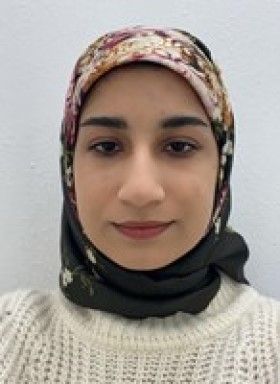
Cohort: 2022
BBSRC Theme: Understanding the rules of life
1st Rotation Project & Final PhD Project: Accessing and recording task-related neuronal activity in the cerebral cortex: using targeted recording configurations (CASE Project), supervised by Prof Miguel Maravall (University of Sussex) and Dr Rodrigo Bammann (Scientica Ltd, CASE Partner).
2nd Rotation Project: What goes wrong in Alzheimer’s disease? Elucidating pathology-driven synaptic signalling defects in brain circuits, supervised by Prof Kevin Staras (University of Sussex) and Dr Arjuna Ratnayaka (University of Southampton).
Professional Internship for PhD Students (PIPS): not completed PIPS yet
Shahd graduated the University of Starthclyde with a 1st class in Bsc (hons) in Biosciences with Teaching, in which she took part in the PGCE program for secondary school teaching in Biology during her final year. Shahd then moved on to complete her Masters degree in the University of Kent in Biomedicine. Her Masters dissertation explored the gut-brain axis through investigating the effects of anthocyanins on C. elegans health and ageing.
Shahd is now working in the Maravall lab on the maze project for her first rotation, in which she focuses on the exploratory behavioural analysis of freely moving mice in a maze. Hence, she is developing the maze’s modular structure and automation as well as training the mice to detect tactical cues within the maze. Ultimately, the results of this project will advance our understanding of how sensitive the somatosensory cortex is to both sensory and non-sensory stimuli.
Beyond her academic life, Shahd enjoys crocheting, painting, reading various genres of fiction novels as well reading and writing poetry.
Susmita Aown (CASE Studentship)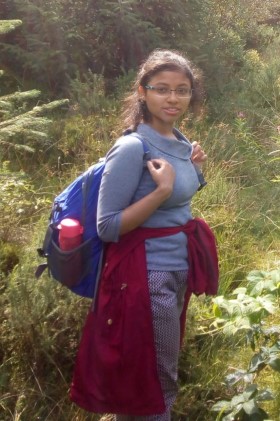
Management Board Student Representative
Cohort: 2021
BBSRC Theme: Bioscience for sustainable agriculture and food
1st Rotation Project and Final PhD Project: Host plant relationships of insect potential vectors of Xylella fastidiosa, supervised by Dr Alan Stewart (University of Sussex) and Michelle Fountain (NIAB).
2nd Rotation Project: What are rhizosphere microbial characteristics associated with healthy plants? supervised by Prof Xiangming Xu (NIAB) and Dr Marc G Dumont (University of Southampton).
Professional Internship for PhD Students (PIPS): CASE partner Royal Horticultural Society , Wisley
Susmita studied her undergraduate degree at University of Northampton, and her Masters at Anglia Ruskin University. Her passion is in grassland ecosystems and insects. Susmita’s interest in grasslands, especially calcareous grasslands, developed while she was working as a Volunteer Officer at the Wildlife Trust BCN in at Lings Office in Northampton during the summer of 2018. She then worked on an undergraduate project that investigated plant species richness and dynamics of plant composition in abandoned quarries in Northamptonshire using historical plant data from Northamptonshire Natural History Society.
After graduating with a BSc. in Biology, she worked as a Field Research Assistant at the University of Northampton, where she learned more about different insect pollinators, and their interactions with plants. Susmita then went on to improve her knowledge and research skills in plant-pollinator interactions through her Masters project with Dr Thomas Ings at Anglia Ruskin. She investigated the which plant traits and bee traits affect the plants that bee visits for collecting nectar and pollen in UK farmlands.
After finishing her MSc. in 2020, she worked as a Research Assistant at the Conservation Evidence, helping a PhD student at University of Cambridge to gather and wrangle GIS data. Susmita spent the summer of 2021 as a Volunteer Reseacher at the Butterfly Conservation, mainly doing transect walk at the Salcey Forest in Northampton. She recorded butterflies in Salcey Forest for the UK Butterfly Monitoring System.
Susmita thoroughly enjoyed the rotations. She believes that the rotation projects fashioned her with a variable box of research skills such as literature review, and writing skills, experimental design and data analysis skills as well as transferrable skills such as team working, independent working, interpersonal skills. She believes that rotation projects help her gain valuable skills in setting up experiments in lab and in field, which she did not have before starting her PhD. The rotations also provided her opportunities to network in the plant-pathogen industry sector.
Susmita is now in the second year of her PhD, devoting her time to her final PhD project which was her first rotation project with Dr Alan Stewart and Dr Michelle Fountain. The aim of the project is to study the ecology, biology, and behaviour of Philaenus spumarius, the main insect vector of Xyllela fastidiosa. Xyllela fastidiosa is a notorious plant-pathogen that causes leaf-scorch, and plant dieback. It is widespread in America, and well known for causing Pierce’s Disease. In 2013 it was first detected in Apulia, Italy, where it caused a massive outbreak in olive groves. Xyllela fastidiosa is an economically important plant-pathogen, and is insect transmitted. The diseases caused by Xyllela do not have any cure, and hence, stopping the spread of bacteria is the primary way to prevent crop damage. The bacteria has not yet been detected in Great Britain, but there is high possibility that Xyllela fastidiosa might come to Britain through imported plant materials. Therefore, learning about the insect vector, and the susceptible crops are critical to prevent Xyllela spread in the UK, as well as come up with Integrated Pest Management techniques.
Susmita has been working in collaboration with lavender and grapevine farmers in Sussex and Kent to survey their farms for the presence of her study insect, P. spumarius. She has also been formally interviewing the farmers to build up picture of common farm practices in lavender farms and vineyards in Sussex and Kent. Her aim is to establish if the farming practices might be affecting the presence, absence, and abundance of the insect in these habitats. Her first fieldwork season has been very warm and fun (along with being lots of work!).
Outside of academia Susmita is interested in equality and easy access to science, and science communication. She has become the Vice-Chair of The Racial and Ethnic Equality and Diversity (REED) Ecological Network. The Network is doing amazing work to improve EDI in Ecology and Conservation, please use this link to learn more about it – https://www.britishecologicalsociety.org/membership-community/reednetwork/.
The REED Network has a place close to heart being part of the REED community helped her reach the other side through a very rough time during the pandemic. I joined the REED committee as the new vice-chair to contribute to REED community and help others get over difficult times and ensure that they reach the goals and dreams they dreamt.
Susmita also likes to knit for friends and family, make clothes, listen to audio books, play piano, and cuddle her cats Rosie and Caramel when they would let her!
Dan Beach
Cohort: 2023
BBSRC Theme:Understanding the rules of life
1st Rotation Project & Final PhD Project : Using AI and big data to identify a set of biologically validated drug targets for hard-to-treat cancers, supervised by Dr Frances Pearl (University of Sussex), Michelle Garrett (University of Kent) and Stuart Farrow (CRH, CASE partner).
2nd Rotation Project: Variation in the mutation rate across the human genome, supervised by Adam Eyre-Walker (University of Sussex) and Marta Farré Belmonte (University of Kent).
Professional Internship for PhD Students (PIPS): not completed PIPS yet
Rhianne Broadway
DTP Wellbeing Champion
Cohort: 2022
BBSRC Theme: Understanding the rules of life
1st Rotation Project & Final PhD Project: Viral variants: assessing the impact of natural strain variation on the structure and function of virus replication and transcription factors, supervised by Prof Michelle West (University of Sussex) and Prof Mark Wass (University of Kent).
2nd Rotation Project: Uncovering the structural and molecular mechanism of CBTF, a key regulatory transcription factor during early embryonic development, supervised by Dr Erika Mancini (University of Sussex), Prof Matt Guille (University of Portsmouth), and Dr Garry Scarlett (University of Portsmouth).
Professional Internship for PhD Students (PIPS): not completed PIPS yet
Rhianne went to university after doing an access to HE course as a mature student, going on to get a 1st in Biomedical Science at University of Sussex, with a dissertation that tested the antigenicity of a novel Ikoma-virus g-protein epitope with Dr Edward Wright. She published a review during her degree titled ”Potential Role of Diabetes Mellitus-Associated T Cell Senescence in Epithelial Ovarian Cancer Omental Metastasis”. Rhianne is now doing a PhD in Biochemistry and is determined to make a difference through scientific research. She is particularly interested in virology, proteins, particularly transcription factors and how these can be studied to give us answers to bigger or unanswered questions and drug development.
Rhianne lives with her three cats and is an avid gamer (both computer and tabletop). She also enjoys cooking and reading fantasy novels.
Oliver Clark-Hattingh
Cohort: 2024
BBSRC Theme: Bioscience for sustainable agriculture and food
1st Rotation Project & Final PhD Project: The Sounds of Soil – understanding the relationships between soil structure, biodiversity and ecoacoustics, supervised by Dr Christopher Sandom (University of Sussex) Dr Katherine Williams (University of Portsmouth), and Dr Alice Eldridge (University of Sussex).
2nd Rotation Project: Soil biophysical interactions in a changing climate and land use with supervisors Dr Siul Ruiz (University of Southampton), Dr Katherine Williams (University of Portsmouth), and Prof Tiina Roose (University of Southampton).
Professional Internship for PhD Students (PIPS): not completed PIPS yet
Abigail Edwards
Cohort: 2024
BBSRC Theme: Understanding the rules of life
1st Rotation Project: Discovering novel modulators of Wnt signalling and their impact on the haematopoietic system, supervised by Dr Rhys Morgan (University of Sussex) and Dr Matthias Baud (University of Southampton).
2nd Rotation Project & Final PhD Project: A systems biology approach to understanding how mutations hijack signalling with supervisors Simon Mitchell (University of Sussex), Sean Lim (University of Southampton), Fabio Simoes (University of Sussex).
Professional Internship for PhD Students (PIPS): not completed PIPS yet
Xavier Jeanne (Industry Co-funded Studentship)
Cohort: 2024
BBSRC Theme: Bioscience for an integrated understanding of health
Project Title and supervisors: Development of LA1011 for high affinity binding to Hsp90 for use towards healthy ageing in patients showing Alzheimer’s symptoms, supervised by Dr Chrisostomos Prodromou (University of Sussex), and Dr Mathias Baud (University of Southampton).
Professional Internship for PhD Students (PIPS): not completed PIPS yet
Toby Jones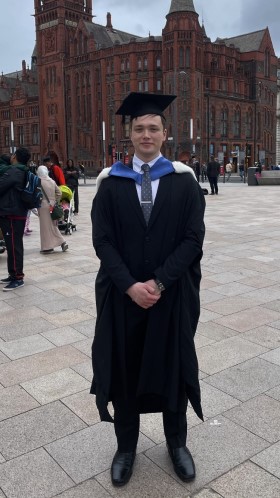
Cohort: 2024
BBSRC Theme: Understanding the rules of life
1st Rotation Project & Final PhD Project: Characterising the antigenic cross-reactivity of arboviruses to aid vaccine assessment and development, and serosurveillance supervised by Dr Edward Wright (University of Sussex), Dr Ashley Otter (UKHSA, CASE Partner) and Dr Ethan Morgan (University of Sussex).
2nd Rotation Project: Discovering novel modulators of Wnt signalling and their impact on the haematopoietic system with supervisors Rhys Morgan (University of Sussex) and Matthias Baud (University of Southampton).
Professional Internship for PhD Students (PIPS): not completed PIPS yet
Toby completed his BSc in Microbiology at the University of Liverpool, graduating with a 2:1 in 2021. After working for a year in the NHS, he went on to earn an MSc in Medical Microbiology at the University of Manchester. This course further deepened his interest in the fight against infectious diseases. During his Master’s program, Toby completed his dissertation on Rhinovirus and Respiratory Syncytial Virus (RSV) co-infection with Staphylococcus aureus. The dissertation introduced him to cell culturing techniques and conducting research semi-independently, sparking his interest in pursuing a PhD in the future.
Before starting his PhD, Toby worked for a year at the UKHSA in the Emerging Pathogen Serology group at Porton Down, where he helped develop immunoassays to detect antibodies against a range of priority pathogens. After gaining this experience, Toby decided to pursue a PhD to develop the skills needed to become a leader in the fight against infectious diseases.
His PhD project aims to identify epitopes that are targets for antibodies across viruses spread by arthropod vectors (arboviruses). Due to the impacts of climate change, the burden these viruses pose is likely to spread to new parts of the globe. Therefore, identifying cross-reactive antibodies and the antigens they target could aid vaccination strategies and improve serosurveillance. Toby’s project aims to enhance this knowledge and accelerate vaccine development.
Outside the lab, Toby is a big sports fan (especially Liverpool FC!) and enjoys gaming.
Fiona Lancelotte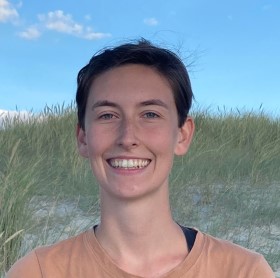
Cohort: 2022
BBSRC Theme: Understanding the rules of life
1st Rotation Project & Final PhD Project: Multimodal imaging of selective recollection in youth and ageing, supervised by Dr Alexa Morcom (University of Sussex) and Dr Zara Bergström (University of Kent).
2nd Rotation Project: Learned changes in odour experience: a neural, genetic and behavioural analysis, supervised by Prof Martin Yeomans(University of Sussex), Dr Lorenzo Stafford (University of Portsmouth), and Dr Matthew Parker (University of Portsmouth).
Professional Internship for PhD Students (PIPS): Sense about Science
Fiona completed a BSc in Psychology and an MSc in Cognitive Neuroscience at the University of York. Her Masters dissertation investigated graded effects of modality on semantic control processes, with a large focus on the macroscale gradients thought to underlie neural function and their relevance to semantic cognition.
Before starting her PhD, Fiona was a Research Associate at the University of East Anglia. Focussing on researching cognitive and neural correlates of personal semantic memory (knowledge of one’s past) in young and older adults, including individuals at genetic risk for Alzheimer’s Disease.
She is particularly interested in the neural underpinnings of memory. As part of past projects, Fiona has used fMRI, EEG and behavioural measures to extend what we know about the inner workings of memory. Fiona’s first rotation project looks at the effect of prior knowledge on episodic memory (i.e., memory of events in ones past) and the role cognitive control may play.
Outside research Fiona enjoys playing hockey, hiking and throwing on the potter’s wheel.
Felicitas Liessem
Cohort: 2024
BBSRC Theme: Understanding the rules of life
1st Rotation Project: Copper-chelating small molecules as a treatment for neurodegeneration supervised by Dr George Kostakis – University of Sussex), Dr Arjuna Ratnayaka (University of Southampton), and Prof Louise Serpell (University of Sussex).
2nd Rotation Project & Final PhD Project: Applying new technologies to dissect RNA dynamics in response to cellular stress with supervisors Ben Towler (University of Sussex), Mark Smales (University of Kent), and Sarah Newbury (University of Sussex).
Professional Internship for PhD Students (PIPS): not completed PIPS yet
Emily Kate Millerchip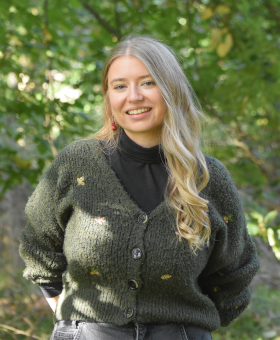
Cohort: 2023
BBSRC Theme: Bioscience for Sustainable Agriculture and Food
1st Rotation Project & Final PhD Project: Perennial crops for sustainable cities, supervised by Dr Elizabeth Nicholls (University of Sussex), Dr Daniel Ingram (University of Kent), and Prof David Goulson ( University of Sussex).
2nd Rotation Project: Understanding the genomics and ecology of floral nectar to enhance crop-pollinator interactions, supervised by Dr Maria Castellanos, (University of Sussex) and Dr Mark Chapman (University of Southampton).
Professional Internship for PhD Students (PIPS): not completed PIPS yet
Emily completed her undergraduate degree in Zoology from The University of Sheffield in 2021. During this degree she developed an passion for understanding the role of beneficial insects within agriculture and the development of sustainable green spaces within urban areas.
This led her to complete a MRes Consevation Biology from the University of Sussex in 2023. Her masters dissertation project researched the effect of inter-vine wildflower planting on insect natural pest enemy diversity, in Sussex vineyards. This project was in association with the insect conservation charity Buglife and the Changing Chalk project.
Emily’s current research is analysing the benefits and costs assoiated with planting perennial crops in urban agriculture. This project involves working with urban agricultural sites, though citizen science projects, to collect information on resource use, biodiversity and crop yields for perennial crops.
Outside of her academic pursuits, Emily enjoys reading, baking and hiking with friends and family.
Courteney Kayleen Pienaar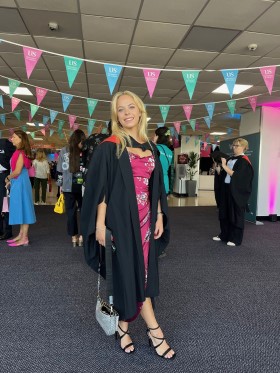
Cohort: 2023
BBSRC Theme: Understanding the rules of life
1st Rotation Project: Do interactions between endometrial derived extracellular vesicles and the microbiome mediate an optimal uterine environment?, supervised by Dr Jane Cleal (University of Southampton), Prof Gary Robinson (University of Kent), and Prof Ying Cheong, (Complete Fertility, University of Southampton).
2nd Rotation Project & Final PhD Project: Manipulating the molecular features of long non-coding RNAs to regulate gene expression in an industrial context, supervised by Sarah Newbury (University of Sussex), Tobias Von derHaar (University of Kent), and Ben Towler (University of Sussex).
Professional Internship for PhD Students (PIPS): Cambridge Healthcare Research Limited
Courteney completed her undergraduate degree at the University of Sussex, studying Biomedical Science and graduating in 2023. During her time at the University of Sussex, she undertook a summer research project in the Newbury laboratory, which investigated the mechanisms underlying long noncoding RNA (lncRNA) translation and regulation. She then continued her research in this area during her undergraduate project, focusing on the regulation of lncRNA by the exoribonuclease Pacman. Through these research projects, she realized that she wanted to pursue a doctoral degree to continue her research in the field. Courteney is currently undertaking her second rotation project in the Newbury lab, where she continues to research the molecular mechanisms underlying lncRNA regulation, particularly focusing on translation-coupled decay mediated by the 5′-3’ exoribonuclease Pacman.
Beyond the lab, Courteney likes to keep active. She also enjoys cooking and spending time with friends.
Joanna Renaut (Industry co-funded Studentship)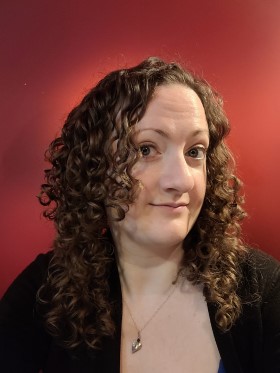
Cohort: 2021
BBSRC Theme: Understanding the Rules of Life
Project Title and supervisors: Dynamic modelling of synthetically lethal pathways to enable the development of cancer therapeutics, supervised by Dr Frances Pearl (University of Sussex), Dr John George (Oppilotech Ltd), and Dr Helfrid Hochegger (DRaKE)
Professional Internship for PhD Students (PIPS): Industry Partner Oppilotech Ltd
Jo completed an Access to HE course as a mature student before going on to gain a First Class with Honours BSc in Biomedical Sciences at the University of Sussex. She stayed on to study an MSc in Cancer Cell Biology where she achieved a Distinction. It was during her undergraduate degree that she developed an interest in bioinformatics and cancer research, and she was able to explore this during her MSc through her dissertation project where she analysed computational data to predict personalised medicine regimes for oesophageal cancer patients. Jo has continued this project into her PhD bringing much improvement to the prediction algorithm.
Jo will be expanding her knowledgebase into modelling by dynamically modelling pathways for specific synthetic lethal gene pairs and their biological processes in order to find new therapeutic options.
Further to this, Jo has spent time during her second year carrying out experimental validation of synthetic lethal predictions learning techniques such as CRISPR Cas9 knockouts and siRNA knockdowns, sterile tissue culture techniques, western blotting, and PCR. Future plans for third and fourth year include expanding her computational knowledge into machine learning and graph theory.
Outside of her PhD Jo enjoys playing boardgames, baking and decorating cakes and is also a keen gardener with an allotment plot; she also teaches coding to women and non-binary people for a large not-for-profit company who offers their courses free to students.
Finally, Jo has taken on the role of student rep for the Biochemistry cohort at Sussex, a role which she is now entering for the third year running in which she runs a monthly coffee afternoon for all the life sciences and chemistry PGR students alongside collecting feedback to make change within the school.
Annie Robertson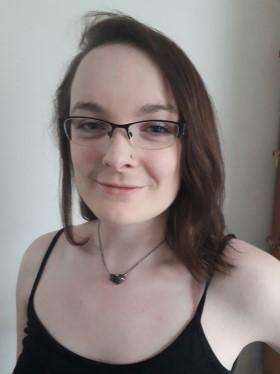
Cohort: 2022
BBSRC Theme: Understanding the rules of life
1st Rotation Project & Final PhD project: Risky decision-making: revealing the neural mechanisms of behaviour selection that maximise survival, supervised by Prof Kevin Staras (University of Sussex) and Dr Arjuna Ratnayaka (University of Southampton).
2nd Rotation Project: Integration of visual and modulatory inputs in the early visual system, supervised by Prof Leon Lagnado (University of Sussex), Dr Sylvia Schroeder (University of Sussex), and Prof Arjuna Ratnayaka (University of Southampton).
Professional Internship for PhD Students (iPIPS): Technopolis Limited
Annie graduated from the University of Sussex in 2021 with a 1st class BSc in Psychology with Neuroscience (Hons). Her dissertation was focused on the investigation of NMDA receptors in the development and maintenance of aversive associative memories, which may play a crucial role in PTSD, phobias, and addiction disorders. This sparked an interest in the mechanisms which underpin neurological diseases and behaviours, with the hope that a better understanding of what is happening at a cellular and molecular level may be able to inform better treatment possibilities. Following this passion, she went on to earn a scholarship and bursary to complete her MSc in Cognitive Neuroscience and Human Neuroimaging at the University of Sheffield in 2022 where she examined the expression of parvalbumin-expressing interneurons in the globus pallidus of autism spectrum disorder models. This further solidified her love for research and led her to pursue a PhD in Neuroscience, which she began in 2022 after being awarded a studentship from the SoCoBio DTP.
Her current research is concerned with identifying the neural circuitry which drives decision-making processes in survival contexts. For instance, when animals are faced with starvation of predation they express appropriate behaviours which maximise their survival in each of these scenarios. However, when animals experience both predation and starvation simultaneously they must be able to evaluate the costs and benefits of engaging in either food seeking or anti-predator behaviours. In other words, they must engage a decision-making process which allows them to evaluate and select the most appropriate action in a given situation. The pond snail, Lymnaea stagnalis, has well characterised and understood neural circuitry, and additionally displays species specific anti-predator and feeding behaviours. Therefore, by using electrophysiological techniques we can access and read out the neuronal activity involved in these key behaviours and consequently determine how one circuit is chosen over the other. This project will also involve the development of a novel imaging technique for Lymnaea stagnalis, which will hopefully be optimised and utilised concurrently with electrophysiological methods to help answer the question: how does the brain drive decisions when an animal is faced with conflicting motivational states of survival?
When not busy with her academic pursuits, Annie is a lover of video games and table top role-playing games such as dungeons and dragons. She is also an avid reader of fantasy and graphic novels.
Tatum Sevenoaks
Cohort: 2022
BBSRC Theme: Understanding the rules of life
1st Rotation Project & Final PhD Project: Understanding reward and withdrawal mechanisms underlying habitual caffeine use, supervised by Prof Martin Yeomans (University of Sussex), and Dr Lorenzo Stafford (University of Portsmouth).
2nd Rotation Project: The gut microbiome-brain axis: An important player in behaviour and brain function, supervised by Dr Marina Ezcurra (University of Kent) and Prof Amritpal Mudher (University of Southampton).
Professional Internship for PhD Students (PIPS): Emteq
Tatum graduated from Newcastle University with a BSc Honours in Pharmacology and went on to complete a Masters in Neuroscience at the University of Cape Town (UCT) in South Africa where she grew up. Her Masters dissertation focused on the investigation of maternal and infant neuroinflammatory markers with neurodevelopment outcomes; she enjoyed incorporating both neuroscientific and immunological disciplines in her research. Following her Masters, Tatum worked as a research assistant in the Department of Psychiatry and Mental Health at UCT for 2 years where she was involved in numerous projects gaining exposure to a variety of neuroscientific disciplines and topics including neuroimaging, psychosis and mental health. During this time, Tatum consolidated her research skills and interests and decided to pursue her PhD.
Tatum is currently completing her PhD at the University of Sussex under the supervision of Prof Martin Yeomans. She is investigating the effects of habitual caffeine use and acute caffeine withdrawal on mood, cognitive performance and brain activity. This project will expand our knowledge surrounding the neural mechanisms underlying caffeine dependence and withdrawal and has the potential to contribute to questions regarding plasticity and addiction.
Nikolaos Sideris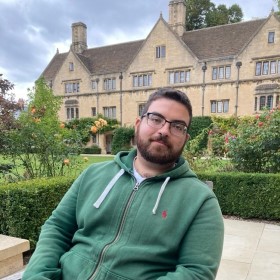
DTP Wellbeing Champion
Cohort: 2022
BBSRC Theme: Understanding the rules of life
1st Rotation Project & Final PhD Project: MicroRNA-based single-cell CRISPR screens to discover microRNA-mRNA networks involved in carboplatin resistance in ovarian and lung cancer, supervised by Dr Leandro Castellano (University of Sussex), Prof Mark Wass (University of Kent), and Prof Martin Michaelis (University of Kent).
2nd Rotation Project: Manipulating the molecular features of long non-coding RNAs to regulate gene expression in an industrial context, supervised by Prof Sarah Newbury (University of Sussex), Dr Tobias von der Haar (University of Kent), and Dr Ben Towler (University of Sussex).
Professional Internship for PhD Students (PIPS): Stratosvir
Nick completed his undergraduate studies in the Department of Biochemistry and Biotechnology at the University of Thessaly Greece. During this time, he discovered his passion for understanding the cellular functions and intricate networks that control the progression and fate of human pathologies. His BSc thesis project involved studying the regulatory role of long non-coding RNAs (lncRNAs) by working to identify and functionally analyze lncRNAs in gastric cancer through inducible silencing via shRNA oligos.
After completing his BSc, he interned at the same lab continuing his project, demonstrating protocols to both under and post graduate students, and taking part in public outreach events. During that time, he was also the wet-lab advisor for the iGEMThessally2019 group, which was awarded a gold medal in the iGEM competition.
Following his undergraduate work studying lncRNAs in cancer he completed an MSc course in “Cancer Cell Biology” at the University of Sussex with distinction and worked as an associate tutor. His thesis project involved studying the effect of mutations in lncRNA oncogene promoters in breast cancer with broader implications on patient outcome. His involvement in these lab projects provided him with the necessary training in applied and computational techniques essential to studying and understanding the mechanisms of gene expression in cancer and its regulation and fuelled him to continue on this track joining the SoCoBio DTP.
Nick’s first rotation project focuses on studying the involvement of dysregulated non-coding RNAs and their targets in conferring tumour resistance to specific chemotherapeutic agents in ovarian and lung cancer. The hope is that discovering these dysregulated gene networks will provide new insights into the evolution of chemoresistance as well as new therapeutic avenues to overcome relapse. By being part of SoCoBio he aims to obtain the practical skills and knowledge in new techniques and the experimental methodologies required for studying cancer in depth and developing novel life-saving therapeutic approaches.
Outside of research Nick enjoys tabletop games such as D&D, going to the gym, martial arts, reading fantasy novels and going out with friends.
Lucy Unwin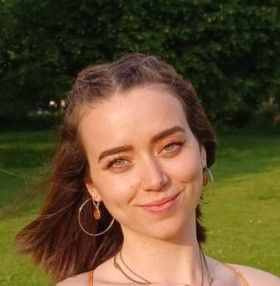
Cohort: 2023
BBSRC Theme: Bioscience for sustainable agriculture and food
1st Rotation Project & Final PhD Project : Understanding the genomics and ecology of floral nectar to enhance crop-pollinator interactions, supervised by Dr Maria Castellanos, (University of Sussex) and Dr Mark Chapman (University of Southampton).
2nd Rotation Project: Perennial crops for sustainable cities supervised, by Elizabeth Nicholls ( University of Sussex), Daniel Ingram (University of Kent), and Dave Goulson (University of Sussex).
Professional Internship for PhD Students (PIPS):Parliamentary Office of Science and Technology (POST)
Lucy graduated from the University of Birmingham in 2021 with a First Class Honours in Environmental Science. Her undergraduate research project, which used MaxEnt climate suitability modelling to predict future distributions of UK butterflies under climate change, ignited a love for biodiversity conservation and research.
Lucy went on to complete a Master’s degree in Global Biodiversity Conservation at the University of Sussex, for which she received a Distinction. For her Master’s dissertation project, Lucy used Differential Scanning Calorimetry to investigate the role of lipid thermal fingerprints in predicting seed bank storage behaviour at the Millenium Seed Bank, Royal Botanic Gardens, Kew.
Throughout her studies, Lucy has maintained a keen interest in plant ecology and evolution. Now, for her first SoCoBio project rotation, Lucy is investigating the interaction between genetic and ecological aspects of floral nectar to better understand variation in floral nectar characteristics. She aims to understand the genetic basis and plasticity of floral nectar traits; what the cost of nectar production for a plant might be; and the importance of nectar variability to pollination quality.
Outside of research, Lucy enjoys hiking, running and pilates, as well as cooking and eating food with her friends and family.
Emily Woods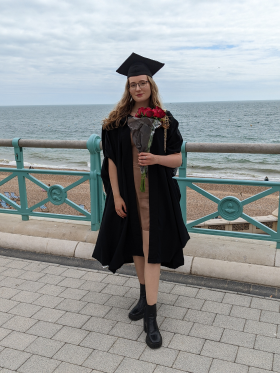
Cohort: 2022
BBSRC Theme: Understanding the rules of life
1st Rotation Project & Final PhD Project: Unraveling the brain mechanisms behind how cognitive and physical stimulation dampens food cravings and food consumption in mice, supervised by Dr Eisuke Koya (University of Sussex), Dr Hans Crombag (University of Sussex), and Prof Jerome Swinny (University of Portsmouth).
2nd Rotation Project: All-optical analysis of neuronal circuits in the cerebral cortex using a novel imaging configuration (CASE Project), supervised by Prof Miguel Maravall (University of Sussex) and Dr Christian Wilms (Scientifica Ltd)
Professional Internship for PhD Students (PIPS): GABA Labs Ltd
Emily graduated from the University of Kent with a 1st class Psychology (BSc Hons) degree, where she discovered her interest in Neuroscience. She was then awarded the Chancellors Master’s Scholarship (2020) to study Cognitive Neuroscience at the University of Sussex, where she achieved a Distinction MSc degree. During her Master’s dissertation, Emily investigated the influence of the phosphoprotein DARPP-32 and sex differences on reward-related behaviour in mice, where she developed keen research interests in motivation and addiction.
Following her studies, Emily volunteered as a research assistant at the Singer lab (University of Sussex), where she assisted with analysing ultrasonic vocalisations from rats. This work informed a PhD project investigating the affective state of rats during cocaine and heroin self-administration. This work allowed Emily to further explore the research areas of motivation and addiction, and strengthened her interest in pursuing a career in research.
Emily’s first rotation project is investigating the brain mechanisms behind how cognitive and physical stimulation dampens food cravings and consumption in mice; specifically looking at the effects of cognitive and physical stimulation on cue-evoked Fos expression in prefrontal interneurons. This project aims to inform current understanding on how brain mechanisms can work to reduce food cravings and consumption.
Outside of academia, Emily enjoys cooking, avoiding seagulls on Brighton beach, and watching Netflix.
Alumni
Fiyinfoluwa Adenekan
Cohort: 2020
BBSRC Theme: Understanding the Rules of Life
PhD Project: Identification and activity of new regulators of cell division, supervised by Dr Marcin Przewloka (School of Biological Sciences, University of Southampton) and Dr Helfrid Hochegger (University of Sussex).
Austeja Bakulaite
Cohort: 2021
BBSRC Theme: Understanding the rules of life
PhD Project: Development of novel small molecule inhibitors of Tyro3 receptor tyrosine kinase, supervised by Dr Sassan Hafizi (University of Portsmouth), Prof John Spencer (University of Sussex), and Prof Paul Cox (University of Portsmouth).
Charlotte Bilsby
Cohort: 2020
BBSRC Theme: Bioscience for renewable resources and clean growth
PhD project: Plastic-eating yeast: towards plastics as feedstocks for synthetic biology, supervised by Dr Tobias von der Haar (University of Kent) and Dr Andy Pickford (University of Portsmouth).
Victoria Cheung
Cohort: 2020
BBSRC Theme: Understanding the rules of life
PhD Project: Development of selective CLIC1 inhibitors for the treatment of glioblastoma, supervised by Dr Jose Ortega-Roldan (UKent), Dr Mariana Oana Popa (USussex) and Prof Jeffrey Hill (USussex)
Alice Clark
Cohort: 2021(CASE studentship)
BBSRC Theme: Bioscience for renewable resources and clean growth
PhD Project: Coastal rewilding and food security: understanding restoration pathways using ecoacoustics and environmental DNA (eDNA) (CASE project), supervised by Dr Mika Peck (University of Sussex), Dr Ian Hendy (University of Portsmouth), Dr Reuben Shipway (University of Portsmouth), Dr Katie Critchlow CASE Partner: Naturemetrics.
Brandon Coke
Cohort: 2020
BBSRC Theme: Understanding the Rules of Life
PhD Project: Interrogating the b-catenin interactome for novel modulators of Wnt signaling, supervised by Dr Rob Ewing (School of Biological Sciences, University of Southampton) Dr Rhys Morgan (School of Life Sciences, University of Sussex).
Where are you working?
I am a Digital Marketer for Singer Instruments
Tell us about your role?
I am responsible for analysis of the company’s CRM, Google analytics and Ads to increase leads. I also carry out front end web development as well as microbial culturing for customer demonstrations and marketing materials, and I have been involved in video production.
What’s your best memory of SoCoBio DTP
Codethons- I find the best way to consolidate your coding skills is through teaching across a wide a range of stages
Contact Brandon on LinkedIn
Read his publication here: DOI https://orcid.org/0000-0002-0847-6885
Matthew Davis-Lunn
Cohort: 2021
BBSRC Theme: Understanding the rules of life
Project: Defining the role of the talin-kindlin-integrin axis in the regulation of neurite outgrowth, supervised by Dr Melissa Andrews (University of Southampton) and Dr Ben T. Goult (University of Kent).
Annabelle Fisher
Cohort: 2021(Industry co-funded Studentship)
BBSRC Theme: Bioscience for sustainable agriculture and food
Project Title and supervisors: Achieving micronutrient security in a post pandemic and post EU-exit world – “Parsnips as a superfood”, supervised by Prof Guy Poppy (University of Southampton), Dr Jenny Baverstock (University of Southampton), Dr Eleftheria Stavridou (NIAB East Malling), Prof Philip Calder (University of Southampton) AND Dr Frances Gawthrop Tozer Seeds.
David Fisher
Cohort: 2020
BBSRC Theme: Bioscience for Sustainable Agriculture and Food
Final PhD project: Environmental and intra/interspecific approaches to nutrient security – Fruit for the UK’s food security, supervised by Dr Eleftheria Stavridou (NIAB), Prof Guy Poppy (University of Southampton), and Dr Jenny Baverstock (University of Southampton).
Laura May Freeman
Cohort: 2020
BBSRC Theme: Understanding the Rules of Life
Final PhD Project: Microbes and the ageing brain: do host-microbe interactions accelerate age-related cognitive decline? Supervised by Professor Jessica Teeling and Dr Marina Ezcurra
Isabella Garcia
Cohort: 2020 (CASE Studentship)
BBSRC Theme: Understanding the rules of life
PhD Project: How does mis-activation of testis-specific genes disrupt mitotic cell division? (CASE project), supervised by Dr Peter Ellis (University of Kent), Dr Tim Fenton (University of Kent) and Industry CASE partner Lee Larcombe (Applied Exomics, CASE Partner).
Erick Gomes Oliveira
Cohort: 2021
BBSRC Theme: Bioscience for sustainable agriculture and food
PhD Project: Manipulation of chloroplast density to enhance photosynthesis and nutritional value of tomato, supervised by Dr Andrew Simkin (NIAB) and Prof Matthew Terry (University of Southampton).
Hope Haime
Cohort: 2020
BBSRC Theme: Understanding the rules of life
PhD Project: Regulating RNA stability to increase protein production of cells under stress conditions, supervised by Professor Sarah Newbury (University of Sussex) and Professor Mark Smales (University of Kent).
Johanna Haszczyn
Cohort: 2020 (Industry Co-funded Studentship)
BBSRC Theme: Understanding the rules of life
Project Title and supervisors: Investigations of the determinants of nerve agent potency to define novel routes to mitigate the effects of environmental toxins, supervised by, Professor Vincent O’Connor and Professor Lindy Holden-Dye (University of Southampton), and Dr. Chris Green, Dr James Kearn and Dr. John Tattersall (DSTL)
Steven Houghton
Cohort: 2020
BBSRC Theme: Understanding the rules of life
Final PhD Project: Analysing the functional significance of a primate-specific non-canonical glutamate receptor subunit, supervised by Dr Mariana Vargas-Caballero (School of Biological Sciences, University of Southampton), Dr Katrin Deinhardt (School of Biological Sciences, University of Southampton), Dr Andrew Penn (University of Sussex), and Prof Louise Serpell (University of Sussex).
Liam Jones
Cohort: 2020 (Industry Co-funded Studentship)
BBSRC Theme: Bioscience for renewable resources and clean growth
Project Title and supervisors: Microbiologically-influenced corrosion (MIC): Development of a model system to investigate the role of biofilm communities within MIC and their control using industrial biocides, supervised by Professor Jeremy S Webb (National Biofilms Innovation Centre (NBIC), Biological Sciences, University of Southampton), Dr Maria Salta (School of Biological Sciences, University of Portsmouth), Dr Torben Lund Skovhus (Docent, VIA University College, Denmark), Dr Julian Wharton (Mechanical Engineering, University of Southampton).
Where are you working?
Postdoctoral Researcher, University of Amsterdam
Tell us about your role?
I am a postdoctoral researcher at the University of Amsterdam, where my research is primarily focused on the gut microbiome and understanding microbiome interactions within mixed-species biofilms driven by gut metabolism. Much of my work involves designing and running experiments that explore how microbial communities behave, interact, and influence their surrounding environment. I particularly enjoy the challenge of studying biofilms in such a dynamic and complex system.
Previously, my PhD was concerned with the ‘Development of a model system to investigate the role of biofilm communities within Microbiologically Influenced Corrosion and their control using industrial biocides’. The skills I developed during my PhD have been invaluable. My background in microbiologically influenced corrosion (MIC) and electrochemistry has given me a strong foundation in understanding microbe–surface interactions and in applying analytical approaches to capture subtle biochemical processes. Translating electrochemical techniques into the gut microbiome setting has been especially rewarding, allowing me to bring a new perspective to biological questions and to develop innovative ways of probing microbial activity.
Overall, the combination of technical expertise and problem-solving experience from my PhD continues to shape and enhance my research today.
What’s your best memory of SoCoBio DTP
The summer schools were always fun. It was nice to catchup with people within the cohort and learn about their research progress, as well as learn about things outside of research. The strawberries from the biotechnology summer school were a highlight.
Contact Liam on LinkedIn
Read Liam’s publication: https://orcid.org/0000-0002-2695-0464
Sam Jones
Cohort: 2020
BBSRC Theme: Bioscience for an integrated understanding of health
Final PhD Project: Enzymology of the B12-dependent rSAM protein superfamily, supervised by Dr Andrew Lawrence (University of Southampton) and Prof Martin Warren (University of Kent).
Ryan Lawrence
Cohort: 2021(Industry co-funded Studentship)
BBSRC Theme: Bioscience for an integrated understanding of health and Understanding the rules of life
Project Title and supervisors: Unravelling the structure and conformational dynamics of membrane proteins using H/D-exchange mass spectrometry and cryo-EM, supervised by Dr Eamonn Reading (University of Southampton) and Dr Zainab Ahdash (UCB Pharma, industry partner)
Amy Lovegrove
Cohort: 2020
BBSRC Theme: Bioscience for sustainable agriculture and food
PhD Project: Sustainable food security through aquaculture: Establishment of algal technology for optimal aquaculture growth and health, supervised by, Prof Chris Hauton and Prof Tom Bibby (University of Southampton), and Prof Colin Robinson(University of Kent).
Noviann Antonique McLean
Cohort: 2021
BBSRC Theme: Understanding Rules of Life
PhD Project: Eating and Sleeping: How neuronal SKN-1/Nrf regulates satiety using the worm C. elegans, supervised by Dr Jenny Tullet (University of Kent) and Dr Kieran Edwards (Sibelius Natural Products).
Henry Nvenankeng
Cohort: 2021(Industry co-funded Studentship)
BBSRC Theme: Bioscience for sustainable agriculture and food
Project Title and supervisors: Eat-2-ing away: acetylcholine receptor binding subunits lacking vicinal cysteines, a new pharmacophore for mitigation of plant parasitic infection supervised by Prof Vincent O’connor (University of Southampton), Professor Lindy Holden-Dye(University of Southampton), and Philippa Harlow & Marcus Guest, Syngenta Limited.
Thomas Paige
Cohort: 2021
BBSRC Theme: Understanding the rules of life
Final PhD Project: The path to least resistance: investigating the role of an integral membrane protein family that is essential for bacterial antimicrobial resistance, supervised by Dr Christopher Mulligan (University of Kent) and Prof Syma Khalid (University of Southampton).
Kseniia Pidlisna
Cohort: 2020 (Industry co-funded Studentship)
BBSRC Theme: Bioscience for renewable resources and clean growth
Project Title and supervisors: Unravelling Genome Packaging during Recombinant AAV (rAAV) Gene Therapy Viral Vector Production, supervised by Professor Mark Smales (University of Kent), Dr Emma Hargreaves (University of Kent) and Daniel Smith (Cobra Biologics).
PhD Project: Assembly and Dynamics of DNA Repair Complexes, supervised by Neil Kad (UKent), Laurence Pearl (USusx) and Antony Oliver (USusx).
Klaudia Piotrowska
Cohort: 2020
BBSRC Theme: Bioscience for an integrated understanding of health
Final PhD Project: Understanding the epigenetic regulation of fibroblast ageing, supervised by Prof Gareth Thomas (University of Southampton) and Dr Tim Fenton (University of Kent).
Paige Policelli
Cohort: 2020 (CASE studentship)
BBSRC Theme: Understanding the rules of life
PhD Project: Friendly fire: understanding regulation of the genome editing enzyme APOBEC3A in cell growth and anti-viral responses (CASE project), supervised by Dr Tim Fenton (University of Kent), Prof Michelle West (University of Sussex) and industry partner Dr Maria Emanuela Cuomo, Associate Director, UK Lead for Cell Biology and Genome Editing / CRISPR (AstraZeneca, CASE Partner).
Letitia McMullan
Cohort: 2020
BBSRC Theme: Bioscience for an integrated understanding of health
PhD Project: How does a mild restriction in blood supply constrain hippocampal function? Supervised by Catherine Hall (University of Sussex) and Mariana Vargas-Caballero (University of Southampton).
Fardina Rahimi
Cohort: 2020
BBSRC Theme: Bioscience for sustainable agriculture and food
PhD Project: Genetic basis of interspecies oviposition deterrents impacting the horticultural pest, Drosophila suzukii, supervised by Associate Professor Herman Wijnen (School of Biological Sciences, University of Southampton), Dr Bethan Shaw (NIAB East Malling), and Dr Michelle Fountain (NIAB East Malling).
Anne Romero
Cohort: 2020
BBSRC Theme: Bioscience for sustainable agriculture and food
PhD Project: Genomic constrains on domestication: Why are so few species domesticated? Supervised by Mark Chapman (University of Southampton), Adam Eyre-Walker (University of Sussex).
Daniela Rothschild Rodriguez
Cohort: 2021
BBSRC Theme: Understanding the rules of life
PhD Project: Gut bacteria and the brain: the surprising impact of bacteriophages, supervised by Dr Franklin Nobrega (University of Southampton), Jessica Teeling (University of Southampton) and Jerome Swinny (University of Portsmouth).
Molly Rutt
Cohort: 2021(CASE studentship)
BBSRC Theme: Understanding the rules of life
PhD project: The role of endometrial gland derived extracellular vesicles in mediating an optimal uterine environment (CASE project), supervised by Dr Jane Cleal (University of Southampton), Prof Rohan Lewis (University of Southampton), Professor Sarah Newbury (University of Sussex), and Professor Ying Cheong: Complete Fertility (CASE partner).
Richard Stack
Cohort: 2021(CASE studentship)
BBSRC Theme: Understanding the rules of life
Final PhD Propect: The effect of the microbiome and microbial bioactives on semen quality and reproductive health supervised by Dr Gary Robinson( University of Kent), Peter Ellis (University of Kent) and Professor Sheryl Homa (Andrology Solutions ).
Bree Streather
Cohort: 2021
BBSRC Theme: Understanding the rules of life
PhD Project: The development and commercialisation of Supramolecular Self-associating Antimicrobials (SSAs), supervised by Prof Dan Mulvihill (University of Kent), Dr Jennifer Hiscock (University of Kent) and Jonathan Essex (University of Southampton).
Jack Stubbs
Cohort: 2021 (Industry Co-funded Studentship)
BBSRC Theme: Understanding the rules of life
Project Title and supervisors: Developing novel approaches for time resolved structural biology, supervised by Dr Ivo Tews (University of Southampton), Dr S. Mark Roe University of Sussex), Dr Jonathan West (University of Southampton), Drs Agata Butryn & Pierre Aller, Diamond Light Source Diamond Light Source (match funder), Patrick Shaw Stewart, Douglas Instruments Ltd (CASE partner).
Where are you working?
I have a PostDoc position with MicroMAX at Max IV Synchrotron in Sweden
Tell us about your role?
Develop and leading mixing methods for time-resolved serial crystallography together with the MicroMAX team and the MX group
What’s your best memory of SoCoBio DTP
The summer schools where we spent time together as a cohort
Contact Jack on LinkedIn
Read Jack’s publication: Google scholar https://scholar.google.com/citations?user=WL4nU3wAAAAJ&hl=en
Lucy Sutton
Cohort: 2021(Industry co-funded Studentship)
BBSRC Theme: Bioscience for sustainable agriculture and food
Project Title and supervisors: Control of Listeria monocytogenes in the fresh produce supply chain (CASE project), supervised by Professor Bill Keevil (University of Southampton), Dr Callum Highmore (University of Southampton), Dr Sandra Wilks (University of Southampton), and Innogen Carter-Hall (Vitacress Salads Ltd).
Abigail Talbot
Cohort: 2020
BBSRC Theme: Understanding the Rules of Life
PhD project: From atomic to in vivo: a characterization of ILF3 nucleic-acids interactions in the context of eukaryotic transcription regulation, supervised by Dr Erika Mancini (University of Sussex), Dr Garry Scarlett (University of Portsmouth), Dr Matthew Guille (University of Portsmouth), Ruth Murrell-Lagnado (University of Sussex).
Kaya Taylor
Cohort: 2021(Industry co-funded Studentship)
BBSRC Theme: Bioscience for renewable resources and clean growth
Project Title and supervisors: Exploiting Mycobacterium tuberculosis biofilm-derived phenotypes for transformative novel drug discovery, supervised by Dr Simon Waddell (University of Sussex), Prof Jeremy S. Webb (University of Southampton) and Dr Joanna Bacon, Principal Scientist, TB Discovery Group, National Infection Service, Public Health England, Porton Down.
Jamie Thomas
Cohort: 2021(Industry co-funded Studentship)
BBSRC Theme: Biosciences for integrated understanding of health
Project Title and supervisors: Investigating the role of 5-Hydroxytryptamine receptor subtypes in the modulation of cell-specific immune function, supervised by Diego Gomez-Nicola (University of Southampton), Dr Max Ahmed (Compass Pathways) and Dr Gary Gilmour (Compass Pathways).
Konstantinos Tornesakis
Cohort: 2021
BBSRC Theme: Understanding the rules of life / Bioscience for renewable resources and clean growth
PhD Project: Computational predictions of thermostability and binding affinity changes in enzymes, supervised by Prof Paul Cox (University of Portsmouth), Prof Jonathan W. Essex (University of Southampton) and Dr Gerhard Koenig (University of Portsmouth).
Robert Ulrich
Cohort: 2021(Industry co-funded Studentship)
BBSRC Theme: Bioscience for renewable resources and clean growth
Project Title and supervisors: Identification and characterisation of vitamin B12 binding proteins for use in B12 extraction and purification, supervised by Prof Martin Warren (University of Kent), Dr Hartwig Schroeder (BASF) and Dr Evelyn Deery (University of Kent).
Roman Urban
Cohort: 2020
BBSRC Theme: Understanding the rules of life
Chloe Uyl
Cohort: 2020 (CASE Studentship)
BBSRC Theme: Bioscience for renewable resources and clean growth
PhD Project: Improving Second-Generation Biofuel Production: Exploiting the Natural Diversity of the Yeast Scheffersomyces Stipitis (Case Project), supervised by Dr Alessia Buscaino (Primary supervisor: University of Kent), Dr Oliver Severn and Dr Phil Kirk (Co-supervisor: Singer Instruments, CASE Partner).
James Woodward
Cohort: 2021
BBSRC Theme: Bioscience for sustainable agriculture and food
PhD Project: Growing complimentary crops and nutritionally rewarding cultivars to sustain insect pollinators and crop pollination on farms, supervised by Prof Dave Goulson (University of Sussex) and Dr Michelle Fountain (NIAB).
Photo Gallery
Induction Event at Marwell Hotel, Southampton
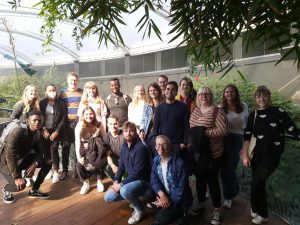
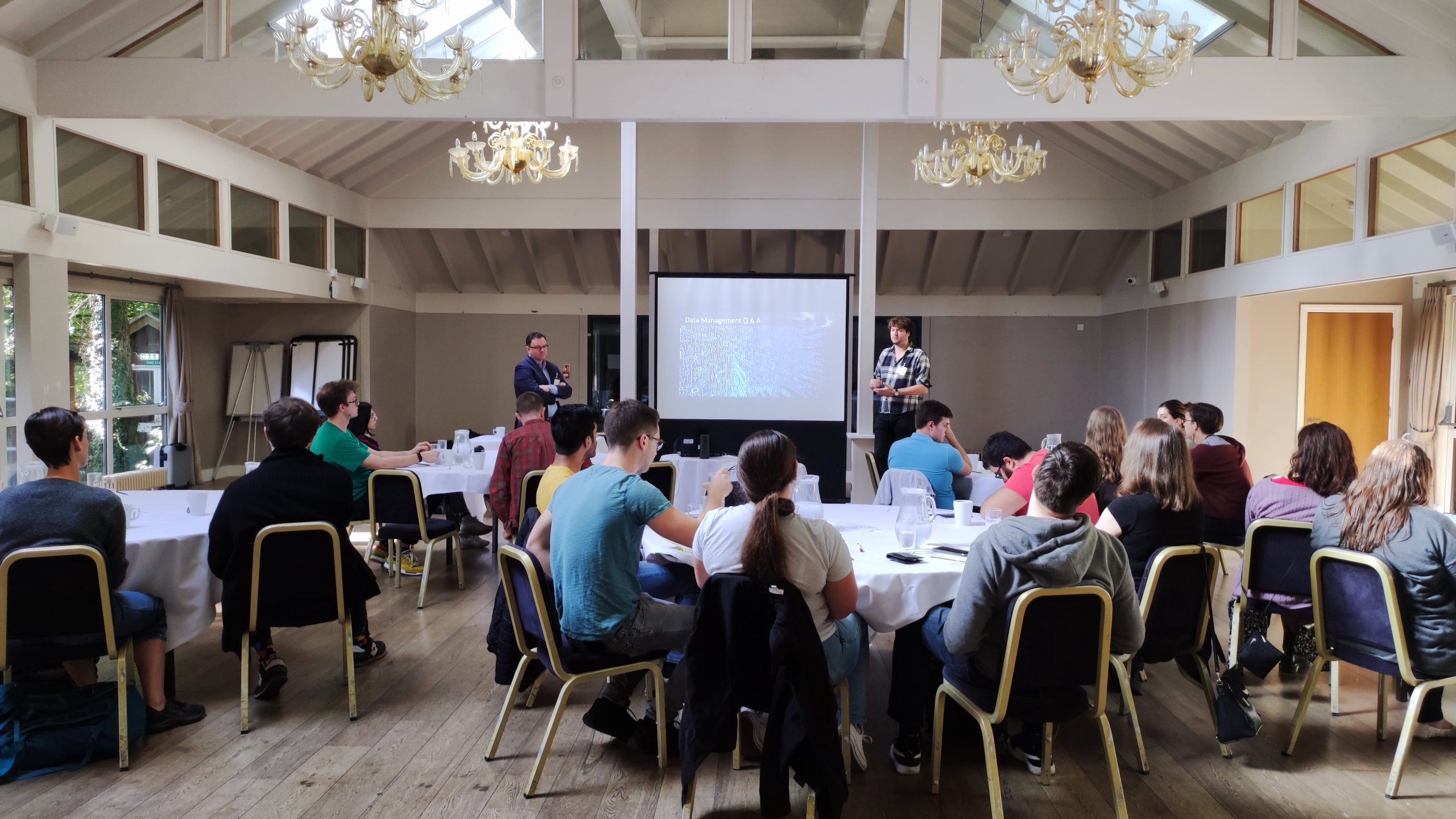
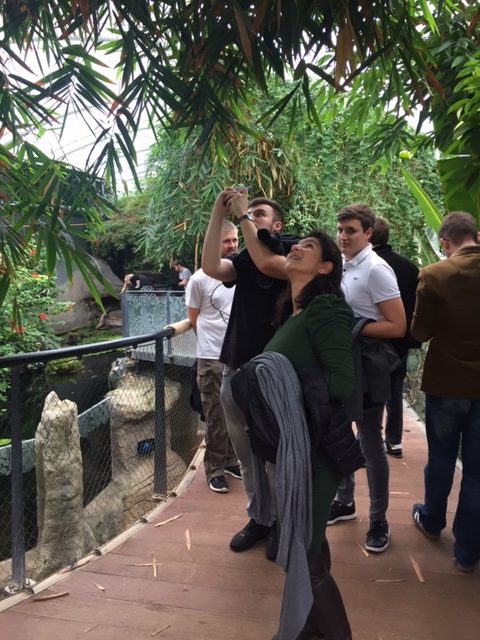
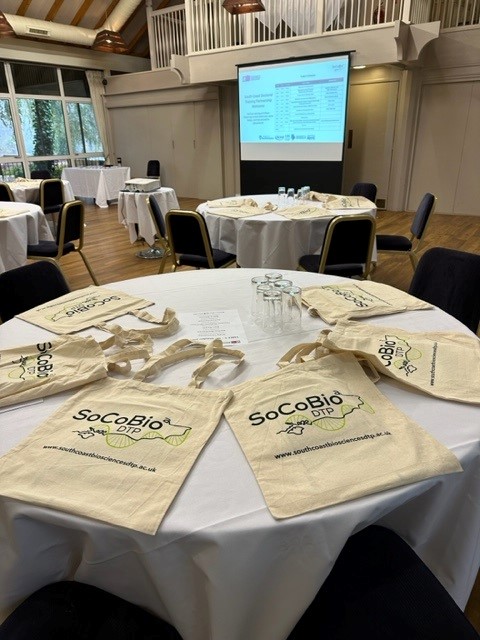
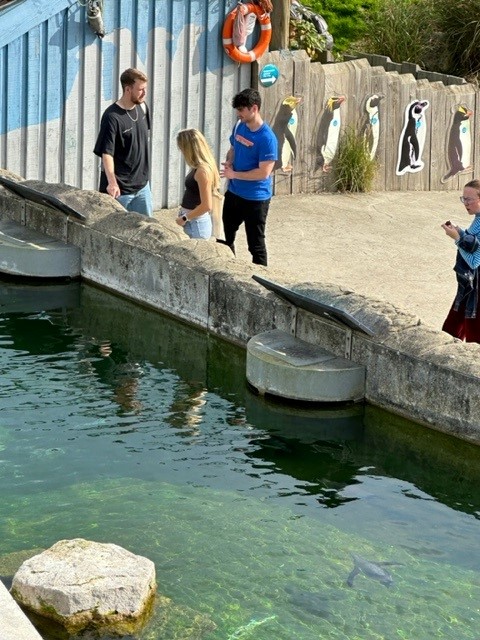
Business and Entrepreneurship Summer School, University of Sussex
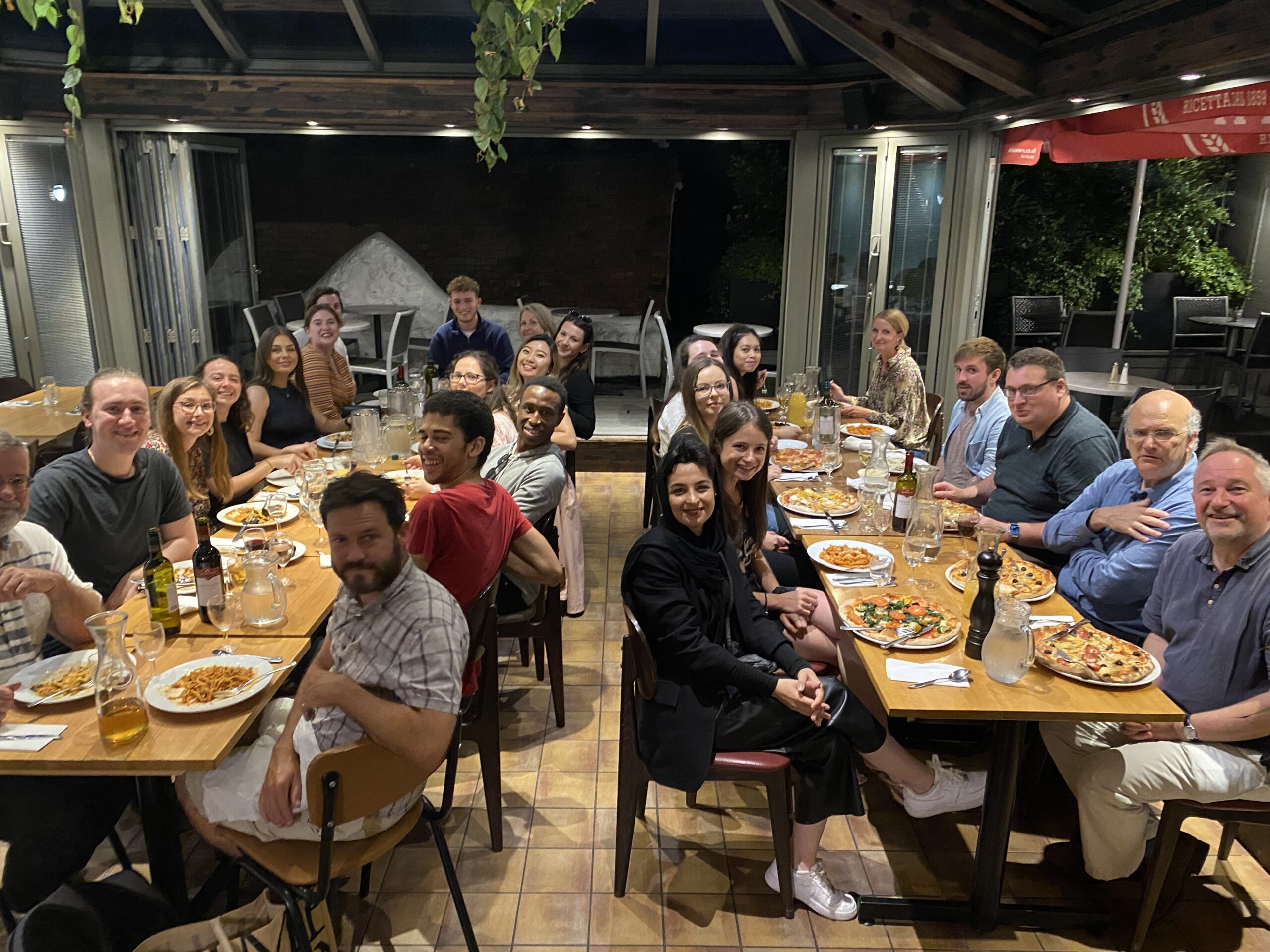
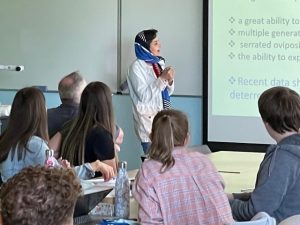
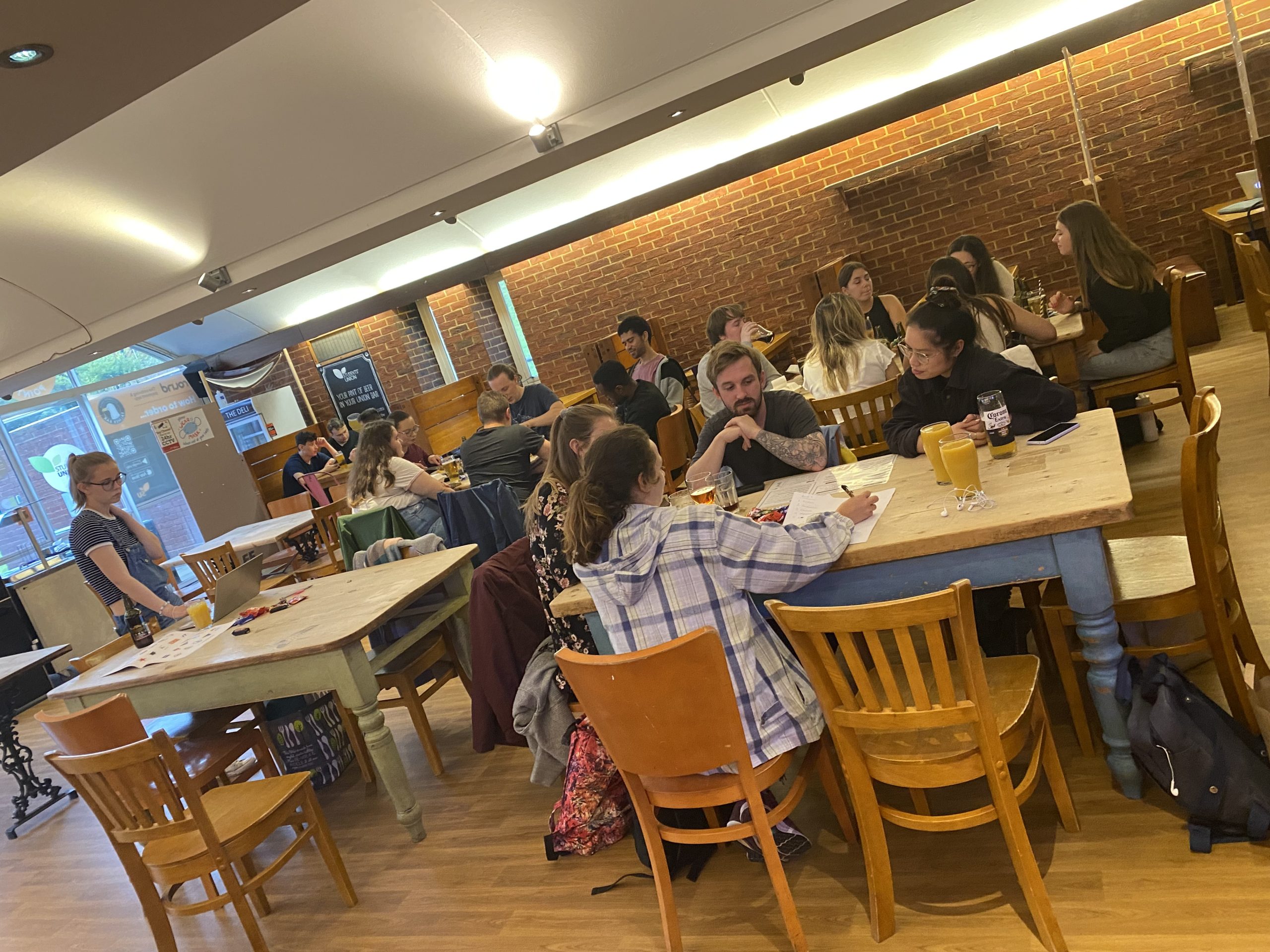
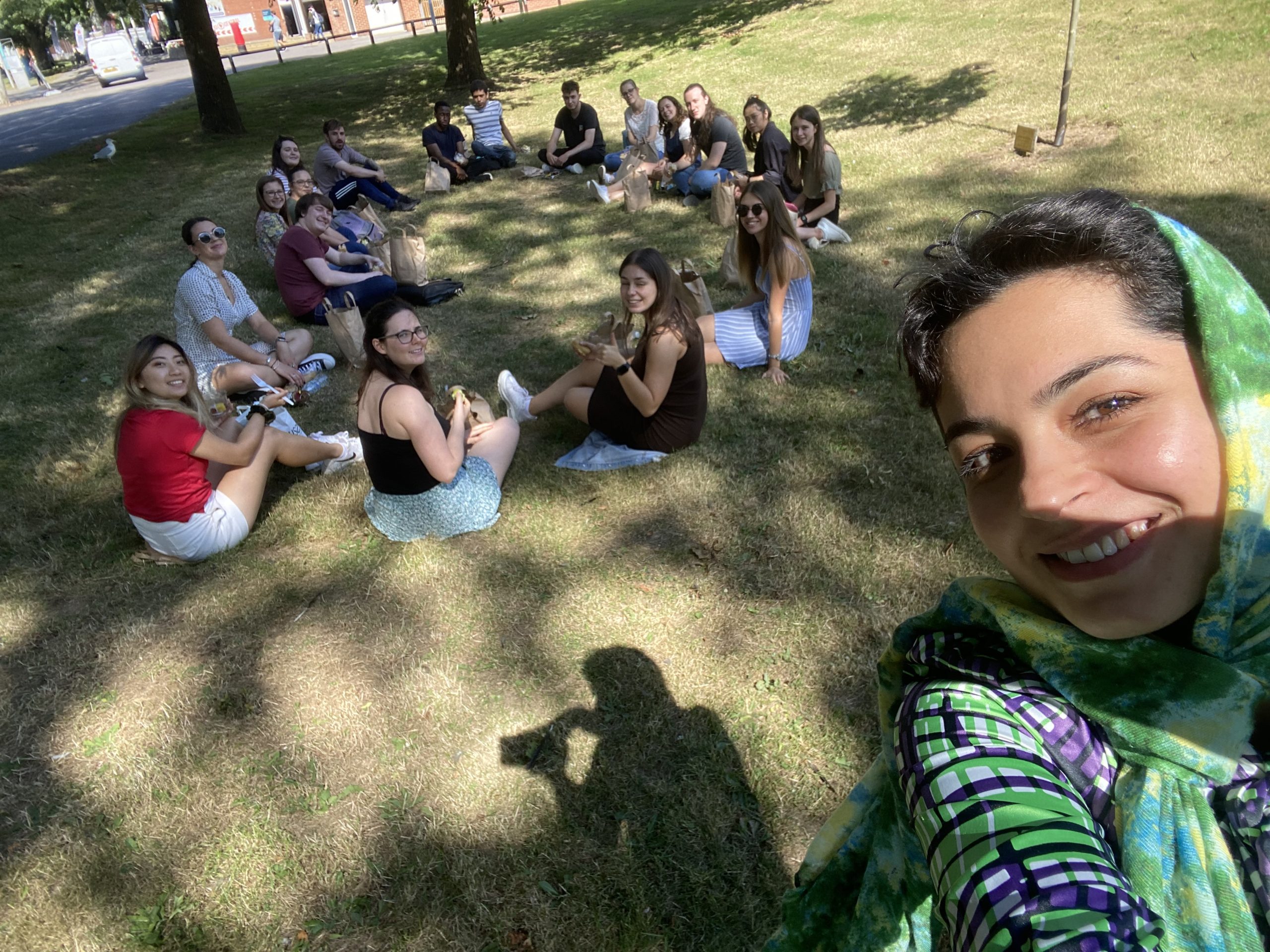
Industrial Biotechnology Summer School, University of Kent
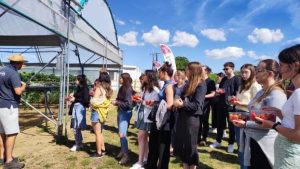
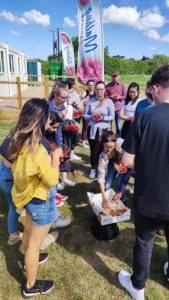
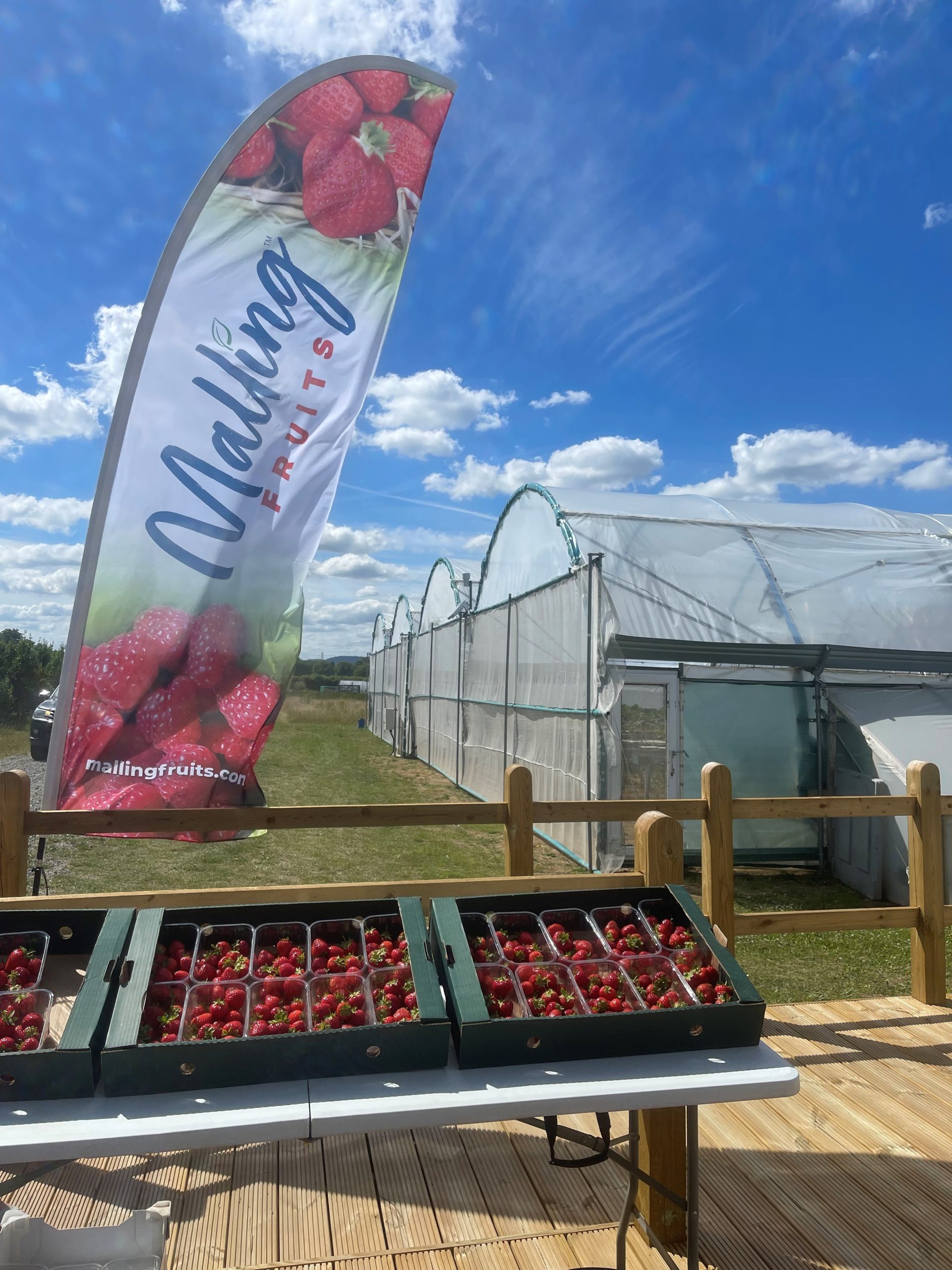
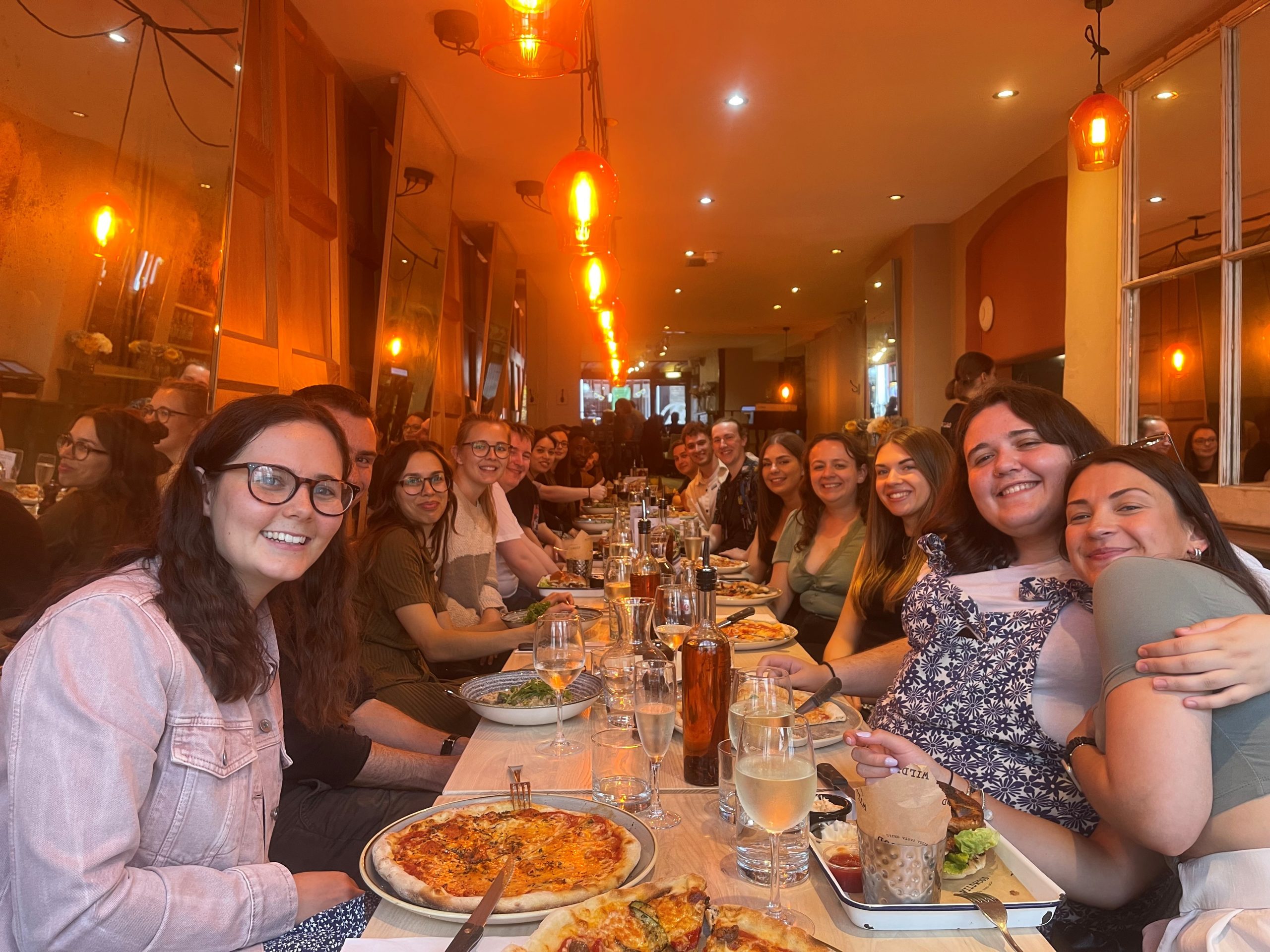
Annual Research Conference
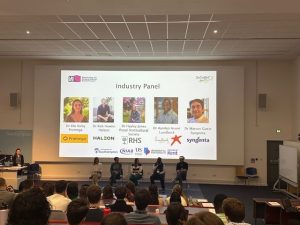
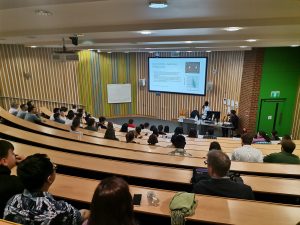
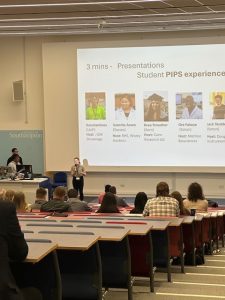
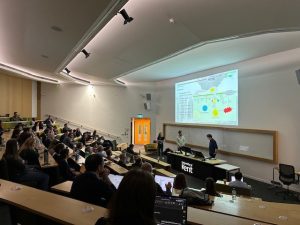
Science Communication Summer School, University of Portsmouth
